|
Race Report by Triathlete Simone Lake Logan Sprint Triathlon Race Report August 7, 2022 Recapping my second ever triathlon; the Lake Logan Sprint Triathlon. This race is part of the Lake Logan Multisport Festival, held over two days with half iron, international, and sprint distances. Swim – 500m, Bike 20K, Run 5k. Background I am a novice in the sport, with a background in swimming and running. I’ve done 10 half marathons, 3 fulls, and a large handful of shorter distance races completed since 2012. I had always been interested in triathlon but never really went for it, just had big dreams of one day completing an Ironman. I am currently in nursing school and am set to graduate this December but I got lucky and had the summer off from school. It had been years since I actually raced (aside from a half I did on a whim last October), so with an open summer, I finally bit the bullet and on March 10th signed up for Lake Logan. Once I had the race on the calendar, I knew I would need a coach to help me along the way. I had the swimming and running down but only owned a mountain bike and rarely got out on it. I found Coach Jay through browsing the internet for local coaches and reaching out to a few, when Coach Jay and I had our first call, I knew it would be a good fit. Fast forward through my summer of training, I got a road bike, learned the ropes of becoming a cyclist, learned how to open water swim (I’ve only really swam in pools), and learned the ropes of what it takes to complete a triathlon. I did the Asheville Tri as a practice run before lake logan, at the suggestion of Coach Jay, which I found to be immensely helpful. Once race weekend arrived for Lake Logan, I felt more than prepared for what lay ahead. Race Day I arrived at Lake Logan at 5 a.m. which was 45 minutes earlier than the race director had suggested but I’m just that type of person who needs to get to where I’m going early, especially for races, so that I have enough time to prepare myself. I sat in my car for about 30 minutes and had my breakfast, a rice cake with peanut butter and a banana, and then began getting all my gear together. Threw the headlamp on and put some air in my tires, grabbed my bag, and made my way over to transition. I had gone out the day before for the pre-race meeting, so I was able to find my rack and my spot on the rack the day before which was helpful. I dropped my bike and bag off at the rack and went over to get my timing chip and body marking. Once I had my chip properly adjusted around my ankle and my number marked on my arm, I went back over to transition to get everything set up. Honestly, this was probably one of my most favorite memories from the race. The calm quiet morning and the buzzing energy from the rest of the athletes around me. I took my time setting up, I felt calm and excited, with a few nerves sprinkled in there too. I chatted with some of the other athletes in transition and then got to business. Walkthroughs, counting racks, visualizing each transition, each leg of the race, and remembering all the knowledge I had gained from Coach Jay. My family arrived shortly after I had started pulling my wetsuit on, perfect timing as I had done pretty much everything I needed to do by that point, besides finishing getting the wetsuit on. Once they started calling the international race athletes over, I did one final check of my transition area and pulled the rest of my wetsuit on. With my family in tow, we all walked over to the bridge that goes over the river – part of the swim – to watch the international race waves start. Race morning, they measured the temperature of the lake, and it was a chilly 70 degrees. I was in a sleeveless wetsuit as this was my first open water swim triathlon. I had done some practice swims before lake logan in my wetsuit but not in 70-degree water. I was in for quite the literal shock. Once the last wave of the international race swimmers were off, I made my way over to the swim start and awaited my wave to be called. I stuck my feet in the water but didn’t end up doing a warm-up swim because I was worried about being cold while waiting for my wave to start. As soon as we were called, I jumped in and started treading water while we waited for the horn to sound. I placed myself at the front of my wave – per the advice of Coach Jay – and I was glad I did! Once they blew the horn, I took off, with a nice clear path in front of me. I only had one person trying to swim over me but moved out of the way and started to work on finding my pace. I was frozen. Cold water shock hit me hard and made it feel incredibly difficult to breathe, it felt like I had something compressing my lungs. I thought maybe if I just kept swimming, I’d snap out of it and start to warm up enough to feel better but I never did. I ended up having to swim some breaststroke for part of it just to breathe, but I would alternate between free and breast just to try and keep some speed. I knew I could have stopped and hung onto a paddleboard of kayak, but I used the cold water as motivation to keep going and just get myself out of the water as quickly as possible. I got a mouth full of grass at one point and also hit my head on a stick floating out of the river but otherwise didn’t run into any other obstacles. I didn’t have any issues sighting which was something I wasn’t sure I’d be good at doing, so that was a plus and having watched the previous waves I knew areas that I needed to try and avoid because of debris in the water from the previous days storms, and because of shallow spots. Now for the fun part. This swim takes you out into the lake and turns back to finish in the Pigeon River. You swim under a bridge and up the river a short way to a dock. This river is coming straight off a mountain and that mountain water always runs cold, about 10 degrees colder than the lake temperature. Luckily this part is short and by that point I knew I was close to the end when I saw the bridge, so I swam hard. It does get shallow in the river, so some people walk, which they advise you NOT to do. Lucky for me, I have short arms, so I was able to swim the entire way without any problem and I didn’t want to take my chances walking because I’m a klutz and would have surely slipped and fallen. I found an open spot on the dock with a free helping hand and was quickly hoisted out of the water. My body was still in shock from the cold so breathing was still difficult, but I took off for transition and ran while pulling the top half of my wetsuit down and getting my goggles and swim cap off. When I arrived in transition, I was stressed because I had thought I bombed the swim, I was cold and having trouble breathing, and my legs felt a little tired because of the cold redirecting blood flow to my core during the swim. I realized my mindset was not where it needed to be and stopped. I took a deep breath and remembered what Coach Jay had taught me, calm is fast. I slowed myself down and remembered what I needed to do. Wetsuit off, dry feet, socks on, shoes on, helmet, sunglasses, grab bike, and go. I ran my bike out of transition and to the mount line and was off on the bike. Probably my favorite part of the tri is the bike leg, which is also my weakest leg since I’m a novice cyclist. My legs definitely took their time to rebound after that cold, cold swim and there’s a nice little climb going up and out from the lake but once I got over that climb and hit the downhill, I knew I would be okay. I love the bike leg because you can kind of relax, take in gels and hydration, and enjoy the scenery. I also like the bike leg because that’s where I really pull out my speed. I race pretty hard during the bike leg, I love the thrill of the chase, and I really love flying down hills. Luckily I had done a preview ride of the bike route about a week prior, so I knew exactly where I needed to go, where I would hit hills, where I could gain speed, and where some problem areas were in the road. Coming back to the lake there is one last steady climb that was pretty rough but there is a nice downhill on the other side of that climb coming back down to the mount/dismount line and around a curve. They have signs that tell you to slow down but I flew all the way to the dismount line. I even heard a volunteer say, “she’s coming in hot!” Yup, I sure was! I got off my bike and ran it back to transition. I was feeling really good by this point. Since I’m a novice cyclist, I’m still riding in my running shoes, so it was a super speedy transition. Rack the bike, helmet off, visor on, grab race belt and go. I clipped my belt on and eased into the run. The run is an out and back route that is a gradual climb out and downhill back, so I paced myself accordingly. I aimed for a negative split run and took it easier on the out leg because I knew I’d be able to pull off some speed coming back and that is exactly what I did. Because this is the last push and where my form tends to fall apart, I have taught myself to stay present by doing form checks along the way. Run tall, pick those knees up, smile, and have fun. I also stay present by being aware of my surroundings and thanking the people around me cheering me on and thanking the volunteers. Now for the big finish. I always have and always will strive for a fast finish. I don’t care if people look at me like I’m crazy, I like a good solid sprint through the finish chute. I do this for two reasons. One, because when I race hard, I like to know I left it all out on the race course, so I make sure that my tank is totally empty once I hit that finish line, and two, to at the very least try and shave whatever time I can off of my run. I’m competitive by nature and have a fighting spirit. Done. The race was over before I knew it. I had thought I blew it from the swim but regardless I still felt like I was winning. I poured my heart into this race and did what I came there to do, which was race hard, execute each leg as best I could, and have the best time doing it. This was my victory lap. I thoroughly enjoyed the race, it was absolutely one of the best experiences of my life. I decided to stay for the awards while also recovering in the sunshine with a hot cup of tea and a couple of cookies in hand. I was in the novice category. “First place female novice, Simone Yamazaki Wax.” Shock. Pure shock. I did not expect to place and have never ever gotten first in my division ever before – not in running or swimming – so this was really something. With a big proud smile on my face, I marched up and claimed my 1st place towel. Upon looking back at race results it also turns out I was 2nd overall in the novice division. And per Coach Jay, had I been in my age group (30-34) I would have claimed second. My second ever triathlon, first open water swim event, and first USAT event. I’m still pretty pumped about my place and still a little in shock, but I worked so hard all summer and it all paid off on race day. I am also so thankful that I had my family there cheering me on and taking tons of photos and videos, it really makes a difference when you hear those familiar voices screaming your name, even if they accidentally call you Kawasaki (which is what I have since decided to name my road bike). I always knew I’d love triathlon but never expected to love it this much, especially the cycling which has since become a favorite activity for me. I have finally found my sport and it has a special place in my heart. However, I couldn’t have done any of this without Coach Jay. Overall Novice Placement: 2nd of 22 Novice Female: 1st of 12 Swim: 12:33 T1: 2:14 Bike: 51:22 T2: 1:43 Run: 29:55 1:37:46 Coaches Notes:
It has been a pleasure and an honor to coach Simone. Helping athletes like her is why I decided to become a coach. I love introducing athletes to the sport of Triathlon. It's even more fun and rewarding when they enjoy it as much as Simone has. Yes, she has found her sport. She is a natural triathlete, hard working, and dedicated. I can't wait to see what her next goals are and to help her crush them!
0 Comments
Race Report by Triathlete Matt Ironman Indiana Recap October 2, 2021 This will be the recap of the day I attempted, and subsequently successfully completed, my first full Ironman in Muncie, Indiana on Saturday October 2, 2021. The day was Saturday, October 2, 2021. I had looked forward for months to the day I was going to become an Ironman. I signed up on April 5 of this year. At the time, 6 months seemed like a lifetime away. It was something I had wanted to do for many years. I still remember watching the guys on TV in the 80’s, thinking it would be great to do that but was physically impossible for me to achieve. Fast forward to roughly 2004. I watched St. Anthony’s triathlon, a very popular Olympic Distance race in St. Pete. I watched the people running the biking by the club. I was in awe. I did not know at the time about types of races/distances or anything at all about bikes. I was very intimidated by what I thought were these “Elite Athletes” doing a triathlon. It turned out a sales rep I worked with Tony, was into triathlons. He told me I could do one. I did a sprint and it was incredible to finish. As the years went on, I started doing 5k’s, then 10k, half marathon and 2 full marathons. I ended up doing 6 St. Anthony’s races, then a half ironman with Jim Parks in 2011. It was the Musselman in upstate NY. To this day, it is by far the hottest race I have ever done. Other than the Ironman, it is also the most well put together race I have done also. Leading up to the Ironman, I hired a swimming coach. Kaelyn was so good. She is about 22 years old, so taking orders from someone that much younger was interesting to say the least. She did great things for me. A few times, I wanted to hold her under water. I did not want to drown her necessarily, just hold her under until she thought she was going to drown. Obviously I am being facetious here. She was tough, giving me the same drills she was given in college. Kaelyn was able to get me in a position to do something I thought was impossible; swim 2.4 miles. I also hired a triathlon coach at the urging of Jim and Harold. Jay Hamvas is a remarkable human and an excellent coach. He was someone I could relate to, someone that was able to push without defeating me. He asked a lot of questions through the weeks we worked together to learn as much about me as he could. In return, whenever I wrote about my workouts, I tried to give him as much information as I could. I did this to help him learn more about me. I figured the more he knew about me and what I felt, the more successful he would be at coaching me. This was not easy to do. I had to more or less let my entire guard down in order for this to happen. At least for me, it was not easy. The workouts leading to race day were very difficult at best. Starting at the end of July, I was traveling 5-6 days per week for work. It ended up being the toughest opening season our company had ever seen. Obviously I had no way of knowing this in April when I signed up for the race. I had to bring all of my workout clothes, find the YMCA before I booked my hotel reservations and follow through on as many workouts as I could. It was a privilege to work out at these YMCAs. I met, for the most part, some incredible people. As in life, there is a certain percentage of people that are less than incredible. I met them too, unfortunately. The difference this time was that I was not going to let the shitty people get to me or piss me off. I had a goal and they didn’t. When someone would be rude to me or just an asshole in general, I would think “I am training for an Ironman. The odds are good that you are not”. I seldom said anything and just moved on about my business. It took a ton of work and sacrifice to get to race day but it happened. The night before the race, I felt very confident I had not forgotten anything. I had made peace with the fact that things were going to go wrong over the next couple of days. When I checked in for the race, it was an incredible feeling. It was beginning to get real. I was definitely nervous. I had butterflies in my stomach, but I was not afraid. For the most part, I was very comfortable being there and I felt like I belonged there. As with any triathlon I have done, there are plenty “Macho Guys”, “Meatheads” or whatever name you can place on them. Those guys really do not matter. I pay them zero attention because they do not warrant it. Yes, we all want to do well. No, we are not going to win anything. These guys take themselves too seriously and are not worth wasting my breath on. Most of the people I met were very cool. I heard one guy say he was from Greenville, SC. I am from Asheville, roughly 50 miles from there. He was a cool guy and was there with his wife. The pre race information session was very informative. I am glad I made the time for that. One lady in the audience 2 rows in front of me referred to the emcee as “terrible”. I quickly let her know that he is doing the best he can and to stop heckling him. I also told her all the information is in the Athlete’s Guide. She stopped. I felt like I had to say something. The guy was up there doing the best he could to help us, so the least we could do is to respect him and listen. My timing bracelet on my ankle did not leave my ankle at all. I slept with it and showered with it. I was not going to lose it. I had dinner with Rachel, my dad and stepmom. I had simple grilled chicken with broccoli, baked potato and pasta. I had been eating like that all week so I was not going to change now. I actually did get to sleep for approximately 5 hours. I was very surprised. I finished getting all my stuff together and drove to the race site. We left at 4:10 AM. I wanted to get there early to get a closer parking spot as well as be relaxed in the morning and not rushed. I ate 2 cinnamon raisin bagels with blueberry cream cheese. They felt good in my stomach. I knew there was plenty of time for them to properly digest prior to the swim. It was chilly when we arrived, probably around 55 degrees. I went to transition to double check my bike and the air in the tires. I dropped off my personal needs bags for the midway points on the bike and run. I was surprised at how quickly the time had passed. I put on my wetsuit, put I dropped off my bike and run transition bags at my bike in transition and began to make my way to the swim start. The energy was something I have never felt. It was actually very quiet. I was very confident. While standing chatting, waiting for the swim start, I reached up to my head to check for my goggles. They were not on my head! At this time, it was around 7:00. The race was going to start at 7:30. I went from being completely calm to having a strong sense of urgency. I grabbed the truck keys and sprinted to the truck. They were not there. At this point, I had resigned myself to doing the swim without goggles. I was completely ok with that. This was the first thing that went wrong and I was rolling with it. I wanted to check transition to see if they were there. They were. I put them down while arranging my transition area. I grabbed them and went back to the water. I eventually found Rachel so I could give her the keys back. I was good. I was calm. I was confident. Like I said, I was totally ready to swim without them. Now I had them so I was good. In line I started talking to a guy named Chris Young. He was a good guy. It was his first full Ironman too. He had a nice way about him. He was very welcoming and had a confident vibe. We chatted until we went off on the swim. When I was in the chute to start the swim, I realized I had not stretched in all the confusion around my goggles! I was still confident. I had a few minutes of not talking to anyone prior to getting in the water. I could not help to think that I was doing an Ironman. After all the years of talking about it, thinking I could not achieve it and doubting my ability, it was here. This was it. Thinking about the race in its entirety gave me goosebumps. I kept thinking back to the day I signed up. The moment I signed up, I pictured myself crossing the finish line. When the swim started, I felt good. Very good. I was very confident after the first 100 yards or so that I was going to have an excellent swim. After the first couple of hundred yards, I realized I had to pee. Bad. I stopped to tread water a couple times but it didn’t work. When I turned the first red buoy I found a kayak. I grabbed onto it and went to the bathroom. It was a relief. I then went about my way. It was the first swim of my life that I actually passed people. It felt good. I knew then that all the practice was paying off. I was comfortable and was concentrating on being consistent and the same speed. I had avoided the temptation to start out fast and I was very happy with that. It was a 2 loop swim. We had to swim 1.2 miles, get out of the water and run 20 years and get back in. When I went in for the second loop, I knew I was going to succeed at defeating the swim. One guy came up behind me and grabbed my foot. I stopped kicking, as I did each time I felt a swimmer behind me. I did not want to kick anyone in the face by accident. The guy came up beside me and pushed me at my knee; again on my hip. I swam to the side to get away from him. He came up beside me and pushed at me around my shoulder. I gave him an elbow to the head. He did not bother me after that. That is not my style and I have never done that before. He wouldn’t give up and was malicious in his actions. Again, after a few hundred yards, I had to pee again and bad. The good news was that I was hydrated properly. Again, I felt very good about that. For me, it was difficult to maintain focus on my stroke. I tried to stop a few times to go but to no avail. I swam until I could stand up at the end of the swim. I stood up to my neck in the water and went. I faced the swimmers coming at me so I could dodge them. My swim was 1:38 something. I was very pleased with that. I figure I wasted 5-6 minutes trying to go to the bathroom. Again, something went wrong and I plowed through it. In my eyes, I had completed what I thought was the part of the race (For me at least) that could have forced me to DNF. I rationalized in my mind that I was 1/3 of the way done. I had to do that to keep going and not think of the enormity of what was to follow. I was going to take my time in transition, reverting to Harold’s wisdom of making sure everything was right, as it is a long race. We had to go up a long hill to get back to transition and get on the bike. I walked fast and jogged a little. I removed my wetsuit, dried off, wiped the sand off my feet and ate an apple, as I dressed for the bike. I made sure I had all the fuel I needed for the bike. It was going to be a long bike ride, probably around 7 hours. I was comfortable getting on the bike. I had body glide in all areas I thought I needed it so I was good. I ran my bike out of transition and started. In the beginning of the bike, I felt great. My pace was strong. I was thinking about how glad I was that I had done squats for the past 2 months or so. At the same time I wished I had started doing them sooner. I thought I was going to be chilly, but in actuality I felt very comfortable. At this point, I was relieved I did not wear long sleeves. The bike course was great. The corn and wheat fields seemed to go on forever. They were one after the other it seemed. As I was biking I wondered if I had eaten a loaf of bread, pasta or any other food item that was grown in this area. To me, it signified small town America; farmers trying to make a living that provided us with food from their crops. The corn and wheat fields literally went right up to the homes that owned that property to maximize the use of the land. We saw farmers out there cutting down the corn, harvesting the wheat. It was incredible. This is where it starts to get food on the table for us Americans. A few hours into the bike, it started to cloud up. Then it started to rain slightly. It seemed like there was a crosswind at all times. I do not remember there being a tailwind! The windmills were incredible. They are so big when you are up close to them. You know it is windy when they are really turning! The bike course was not bad. It was not terribly hilly. Several climbs were long and gradual. The elite athletes were so fast. A few times, when I felt like I was going fast, one of them would pass me and I all of a sudden felt like I was riding through wet cement. The special needs came at a great time. I ate my apple and refilled my drink containers. I had dropped my bike bottles on the back of my seat twice, so I just left those 2 by the garbage can. I knew there were enough hydration stops on the course that I really only needed two of them. By the time I arrived at the special needs stop, it was pouring. Some of the volunteers were flustered, wet and cold. With the wind, it was tough there. I had to press on though. I was chilled and I knew I still had 50+ miles to go. I looked at it like I was halfway there. I have to look at things in a positive light and percentages to keep looking forward. My neck was really bothering me. When I stop and stand, it immediately feels better. I stopped to go to the bathroom twice on the bike so I felt like I was hydrating properly. Each time I stopped, the volunteers were incredible. Their spirit was literally unbreakable. Every single time I passed them, I would thank every single one of them. I also thanked every city/county worker/cop because what they did to put this race on was incredible. In order for the race to be successful, literally hundreds of people had to work together and do their part. I thought about this as I rode. I also started singing Bon Jovi’s Wanted Dead or Alive. I do not know why, other than I used to listen to that song before soccer games in high school. I started counting the miles down, in percentages. I would think about what percent I had completed and what percent I had still to go. I was still very confident the whole time and knew I would not be denied. Not today. I was getting passed by a guy one time. He did not say “On your left”, like you are supposed to do. He didn’t say anything at all. I was passing a biker at the same time. He went in between us, almost wrecking both of us. I did not say nice things to him. He was one of those macho guys I was referring to earlier. The last 5-6 miles of the bike was on a paved greenway/trail. One of the women I passed was complaining that it was all uphill. I almost told her where I was from and that where I live are some very difficult hills! Biking in Indiana was a walk in the park compared to Western North Carolina! I felt good about what I had consumed during the bike. I drank 5 bottles of Gatorade Endurance (I really needed to drink 7). It was tough to drink when it was cold. I ate at least 400 calories per hour on the bike as well. I felt full but comfortable. From miles 30-60 or so, I had a wicked cramp on my right side. I made it go away by eating mustard packets and the Kaopectate in my special needs bag. I kept talking to that cramp, telling it that it had to go away, it was not going to ruin my day and then I ignored it. It was gone. Again, something went wrong and I pushed through it. I was not going to be denied. I was relieved that the bike was over. It was grueling. For me, it ended up being the toughest part of the race. I actually did better on the swim comparatively to the rest of the athletes. I saw Rachel on the way into transition. She was such a welcome sight, such a ball of energy. I also took my time in transition, changing my socks, drying off a little and redoing my little running bag to make it good for the run. I brought gels, honey stingers and shot blocks. I figured I would need all of them. I also ate another apple, which really hit the spot. As I left transition, Rachel was there again with my Dad and Stepmom. My dad was sporting his new Ironman hat. Their energy was incredible and very encouraging. My dad slapped/shook my hand and I was off. I walked the first 400 yards or so getting my head in the place it needed to be in. I ate a honey stinger and started out on a slow jog. Fortunately, my calf was doing well. I had no issues from the pulled calf I had been nursing along for several months. I was completely relieved. I picked up the pace, eventually running a 9:19 mile on mile four. I looked at my watch and realized I had to slow down if I was going to finish. I settled into a good pace that worked for me, stopping at each hydration stop to walk. I knew that was going to work for me. It was an out and back course, 2 loops. It was brutal to hear the announcer telling people “You are an Ironman” as we were leaving transition for the marathon but I knew I had to get past it. Seeing the mileage markers that were from miles 14-26 on the first loop was also rough mentally. Again, I had to get past that and I did. It was interesting watching the other athletes. Some were really struggling, some were cruising. I ended up talking to a younger Hispanic guy along the course. We kept leap frogging each other. He had on a Carrhart hat on backwards. He was a very humble guy and cool to talk to. The volunteers again were very energetic. They still had the same tenacity late at night as they did early in the morning. At some of the stops, they had huge Halloween decorations all blown up. Some of them had rock and roll music playing. At one point, a guy on a mountain bike was riding between all of the runners with loud upbeat music playing. It was great. Getting anything into my stomach became a chore. I choked down 2 of the honey stingers and that was the end of them. Thinking about eating a gel or shot block was out of the question. Just thinking about it was making me gag. I knew I had to keep drinking so I kept forcing down water and Gatorade. Around mile 6, I started eating potato chips and coke. That was what worked for me. At mile 4, I started feeling pain on the outside of my left knee. It was the same spot that was killing my in my half Ironman August 8th. I took some ibuprofen and told it to go away and that it was not going to derail my day. Eventually it went away. It must be that the pain died. After all, isn’t an Ironman where pain goes to die? It happened twice for me. As I neared the beginning of my second loop on the run, the announcer was louder than you could ever imagine. He kept congratulating people for crossing the finish line. It was tough to hear, but instead of saying I had another 13 miles to go, I said I had already completed half of the run. There is a big difference. I also knew I had completed a large percentage of the race. It started to get dark. I turned on my lighted vest from the Keys 100 Race. It was awesome. It did not take long for the hallucinations to set in. I was seeing “spiders” on each side of me level with my head. They were actually the shadows from my hands going back and forth while running cast by the light. It took me about 45 minutes to figure this out! I knew I was seeing things. I kept seeing people in the cornfields, animals around me and the like. I knew it was imaginary so I kept plowing through. It was very humid. It kept raining off and on, which wasn’t bad. I knew I was profusely sweating so I tried to continue to ingest as much liquid as possible. When I was about 9 miles from the finish, I could see the light shining from behind the trees from one of those large lights that were placed onto the course. The road went slightly up and to the left, then down. The light reflected up the road towards me. It was barely raining and there was fog close to the ground. I could only see the silhouettes of the runners going in each direction in the light that was shining from behind the trees. That picture will forever be etched into my memory. It was unworldly and beyond being able to describe. The last 6-10 miles were a struggle. Big surprise there, eh? I started thanking everyone who had helped me. I thought of everything I had overcome to get here. Defeating depression/my time in the hospital, almost losing my arm last year, car accident, bike accident, illnesses, traveling, demanding work schedule. I had to keep up a mindset of not quitting to keep going. The camaraderie along the course was incredible. One guy said he tried to stay with me on the run, but he couldn’t do it. He finished the race as I was turning around to do the second half of the marathon. I kept encouraging anyone I could, especially if they looked like they were struggling. (I guess that would have been everyone!) After awhile, I had to realize the reason why a lot of them are not responding is because they couldn’t. They were just trying to get to the finish, and exerting that small amount of energy to say thank you was going to take energy they did not have. I was at that point a few times so I understood completely. I began to think of all the people I had to thank and what I was thankful for. Jay, Rachel, the YMCA employees, my swim coach, Jim, Harold, random strangers at the YMCA’s, the guy in Tallahassee on the treadmill that was going to climb a mountain out west for the 3rd time at 57 years old. The list was long. My dad and stepmom volunteered to drive all the way to Indiana from Florida. That was incredible to say the least. I was thankful for the athletic ability to do an Ironman. I was thankful for being raised in a household, although far from ideal, taught us mental toughness, adaptability and perseverance. Our mother was far from perfect. Compared to or other cousins, my brother and I are what we refer to as “normal”, although the bar is set low. I was very thankful for my health. As I mentioned earlier, I had to overcome a variety of physical challenges. I was very fortunate I was able to get through them without it affecting my race. I had a chronically pulled left calf since March 2020. I pulled it playing soccer. I could not run on it until June 2020. I gradually ramped up my running mileage, getting up to 12 miles. Then in October, I pulled it again. I was good until this past June when it happened again. I had to do something to make sure I could still do the Ironman. Coach Jay helped me get through this. We went very conservative on it, until I could actually start running on it again. I learned how to push that area just enough to challenge it, but not enough to pull it again. I gradually increased my mileage, but the furthest I ran pre-race was 14 miles. I did manage to get in decent mileage during each week; I just did not get in the super long runs as I did on the bike and swim. That being said, I am more confident in my running ability than the other 2 disciplines, so I knew I could power through it. Again, I was able to persevere through that. I could not help but think about how many people were supportive of me during the entire time of training. So many people would randomly call or text to see how I was doing and how training was going. Mark Milliron, who I have known since 1993 flat out told me I was crazy for doing this. I told him I did not disagree with him. Mark is a great friend. He and his wife Carol followed me on the tracker and offered me congratulations. Paul Liptak, a good friend I have known since 1993. Jim Hopkinson “Hoppy”, that I have known since 1989 in college and who has been with me every step of the way in life, Bill Hirchert, who I met in 2011 but we are as close as anyone. Bill’s family was also very involved the day of the race as they followed me and communicated with Rachel. Terry Harding, the hardened 27 year Marine vet who always talks to me when I need it. I could go on and on. Shawn Pitts-I met Shawn when we were both working at the Swiss Hotel in Atlanta. That was September 1992, just after I finished culinary school. Somehow through the years, we have stayed in touch. Shawn is a successful small business owner and someone who I can count on. Shawn was the guy who picked me up after I wrecked my bike in May. Shawn let me know he was proud of me prior to and after the race. I don’t know how to describe it but it meant more than I can say. My brother Nathaniel checked in with me often during the months leading up to it. He is a stud athlete and is in incredible physical shape. He is much more gifted physically than I am; broad shoulders, big arms and very strong. He was texting Rachel all throughout the race checking on me. That was incredible. Then there is Jackie and Michelle, my new found sisters. Michelle and Jackie and their families followed me. Throughout the months leading up to the race, their husbands Dan and Abe also sent me letters of encouragement. During the actual race, they also followed me with their families. It was an incredible feeling knowing how much they support me and care about me and what I am doing. Jim and Harold-I just don’t know what to say. I have known Jim since college. Although I was only there for a year, somehow we have still stayed in touch. It was his idea to do my first Half Ironman in June of 2011. That is still by far the hottest race I have done. Upstate NY, record highs. We did it with 2 other guys that Jim knew. They were of course excellent people. Jim “Introduced” me to Harold in May of 2020. I was on furlough so I had a lot of time to kill. They asked me if I would do the May challenge with them, which was running each day, doing miles that corresponded with each numerical day. I was still recovering from the pulled calf muscle, so I came up with my own workout, but added to it each day. It consisted of planks, jumping rope, burpees, kettle bell swings with a 50# kettle bell and Russian Twists with a 20# medicine ball. By the end of May, I was on my way to getting back in shape. Most mornings I did not even want to get out of bed. They gave me the motivation to do it. We would share videos each day of our workouts or runs. It was very motivating. On the days where I did not want to get up, that made me get up. It was a pivotal time in my life and a time where I needed a lot of help. Harold has overcame some potentially serious health issues to get to where he is at today. He ran the Keys 100 this past May. He asked me to be on his crew, never having met me. I was very nervous about his race, as I did not want to fail him. He was successful and a friendship has ensued. Both Jim and Harold are accomplished endurance event athletes. Any time I was feeling down or needed a boost, they were there. It is hard to put into words. They have inspired me more than almost anyone in my entire life to reach for the stars, to do the impossible and think the unthinkable. This past 18 months has been one of the most important times in my life from a mental health standpoint. At this time, I am almost off all anti-depressants and mood stabilizers. Jim and Harold are huge reasons why that is even possible whether they realize it or not. That is a big deal. I never thought it would happen. It has been a battle that has had to be fought every day. Triathlon has been the catalyst for that to happen. If fighting mental health was a sport, it would be triathlon. It is not a sprint, but rather a long distance that has to be conquered a little bit at a time through perseverance and extreme focus. My times per mile were getting higher. I was now walking through the hydration stops and any inclines. I was good with this. I started talking to one woman who had done Ironman Louisville in 2019. The swim was cancelled due to algae in the water. She said she wanted to complete a full ironman so she was doing this one. We chatted for awhile. She could not run because of blisters on her feet but was going to run across the finish line. I told her I was going to walk the chute because I wanted to enjoy every last second. And Rachel-I do not think she knew what she was in for when I signed up for an Ironman. She has been steadfast in her support of me, the time away from each other supporting me in my quest for a goal that I always thought was impossible to reach. There are no words. I would have had a much more difficult time doing this without her. It was so meaningful that she actually made the time to show up to all three races (My first triathlon in May and the Half Ironman in August), all while trying to raise a 4 year old daughter and of course holding down a job. She makes it look easy. As a parent, she sets the bar very high, and sets an example for other parents to follow. I guess what I am saying is that it was shocking to see how many people cared. It was shocking to see how much people think of me. My friend Bill says if I ever have a funeral, it is going to have to be at a football stadium to fit everyone. Bill and Rachel constantly tell me how much of an impact I have on people or have had on people. They both want me to feel it. Most of the time I do not. There just seems to be an awful lot of people out there that care about my well-being and me. Doing this race brought out a lot of people to give me well wishes. I could feel them throughout the race as I thought of so many that gave me encouraging words along the way. At this point, I knew my goal was within reach. I knew I was going to finish. I wanted to really enjoy this moment and soak in every second. It was something I had worked so hard for. It was something I looked at as being impossible for so many years. I started walking more for that reason. I wanted to continue to savor that moment in time, in my life. As I neared the finish line, I could hear the announcer telling people “You are an Ironman”, as they finished. Prior to getting to the chute, we had to walk up a small incline. I got to the beginning of the chute. The lights were bright, the jumbo tron was on, the announcer was pumped up, and the crowd was rabid. There were literally hundreds of people. I had goosebumps on my entire body. Prior to walking through the chute, I just stared in amazement at the sight in front of me. I started walking with tears in my eyes. This goal, that I thought was unattainable, was now within reach. I did it. Here we are. I thought about all the inspiration I had received. Mostly, it came from Jim and Harold. I love those guys like brothers. The crowd was cheering so loudly. I have never had that in my life. The feeling was indescribable. I put my arms up in victory. The moment was something I will never forget. As I walked up the small hill to the finish line, I heard my name. He then told me I was an Ironman. I made it, this was it. I did a low fist pump and screamed “Yes!”, as I crossed the finish line. I have never had another feeling like it in my life. I hope that I get the chance to do another one. I hope that I inspired someone that heard about it. Many people inspired me. My mental health improved dramatically during the training for the race. I went from 2 years ago, thinking I would not survive another day/week/month to training hard for a race I wanted so badly to be successful in. The transformation has been incredible. By the end of December 2021, I will be prescription drug free regarding anti-depressants and associated drugs. That is a big deal. It is something I never thought possible once I started taking them 9 years ago. I am not against prescription drugs, as they served their purpose. Their main purpose was to keep me alive. They did that, even if it was barely. I understand every day that I should not be alive. I know that. However, Ironman made me feel more alive than I have felt in a long time. I want to get to the point again where when I get up in the morning, I say, “I am going to attack this day”. It has been many years since I have felt that but I think it is within my reach. After all, I finished an Ironman so anyone is possible. After Ironman, I will never be the same. I will never look at life the same. I will never forget 10-2-201 or 14:17:33. I now know that anything is possible. I know that I am capable of so much more than what I originally thought. I just wish I had done an Ironman when I was 30 instead of 50 so I could recognize that potential at a younger age. I think of all the athletes that were out there that day. I think about how they challenged me, how they helped change me, how they encouraged me when my mind started wandering. I will never be the same because to me, I did the unthinkable. I still think about the distance I covered and literally wonder how in the world I did that. A piece of me will always be in Muncie. I think Harold was right when he said “Ironman is where pain goes to die”. I did not necessarily understand or believe that until I was a few weeks removed from the Ironman. I do now. Whole heartedly. My pain is left in Muncie. Part of me was left on the course. I saved a few pieces of grass from the transition area. When I get around to it I will put it in a shadowbox or whatever I put all my race paraphernalia in. Ironman-We did the impossible……..Incredible job Coach Jay! Coaches notes:
Matt's race report and personal journey brought back so many memories of my first full Ironman. Life changing indeed! Matt's perseverance and determination were amazing and inspiring to be a part of. We can truly accomplish whatever we set our heart and mind to complete. Matt is the perfect example of this. I'm grateful and honored that he allowed me to be part of his Ironman journey. Congratulations Ironman Matt! Coach Jay The ripple affect of a Pandemic reaches every aspect of our lives. Work, play, and health are all put in jeopardy as we navigate through these uncharted times. I think the health and fitness sector took a harder hit than expected. As a year-round athlete, I struggled in the early stages of the Covid-19 outbreak with how to cope. Race cancellations filled my inbox and social media feeds. With that comes a lack of motivation to train and workout. The gyms in NC remained closed. Group rides/runs were not encouraged. My 2020 races season was crumbling around me right along with my desire to train and stay fit. I really needed a little hope for the future and a little external motivation. Enter Motus Off-Road. The word “motus” means: movement, motion. What a perfect name for an event series that was born during a time (pre-pandemic) when the XTERRA brand was evolving and dropping races. Motus was created late 2019 by a group of race directors dedicated to bringing races to off-road endurance enthusiasts. By early 2020 they had 12 triathlons and almost as many trail runs on the schedule. But as we all know, the Pandemic rolled in and changed everything. Many of the events had to be cancelled due to local regulations and safety concerns. The Motus spirit was not broken though. The good news is, small off-road events like triathlons and trail runs fit well into Social Distancing Guidelines that were put in place by the CDC, USAT, local and federal officials. It was an incredible undertaking, but the race directors worked through all the bureaucracy and red tape to get the green light to hold 5 events. With safety as the primary focus, each race director put together guidelines for volunteers, athletes, and spectators. The race series had life… Motus Panther Creek, Motus Green River Lake, Motus Knoxville, Motus DINO Southern Indiana, and Motus Nat Greene’s Revenge. My original 2020 race plan was to race 4 triathlons in the Motus series and qualify for the race series points. As the Pandemic grew and races started to cancel, I was unsure if I’d be able to race at all. Ultimately, I locked into 3 Motus Triathlons; Panther Creek, Green River Lake, and Knoxville. With 5 races available, the race series points eligibility was adjusted to 3. My motivation was back, and I finally had a training and race schedule. It was not going to be ideal with a total of 4 races in 5 weeks, (1 on-road sprint followed by 3 Motus off-road) but being able to race again, it would be worth it. Motus Panther Creek, 7/26/20 It probably would have been a good idea to have ridden my mountain bike at least once before arriving at Panther Creek State Park. To be honest, I was a little scared. I crashed on the MTB in early spring 2019 and separated a few ribs. Between the ribs taking a long time to heal and moving to Asheville in August 2019, I just didn’t have the time to ride much. I spent most of the Winter on the road bike on the trainer (occasionally outside on warmer weekend days). So, my pre-ride on Saturday was literally the first MTB’ing I had done in over a year. It went surprising well and gave me some confidence going into Sunday’s race. I camped at Panther Creek State Park Saturday night. It is a very nice Campground and is convenient to the race start/transition. Got up early Sunday morning, overnight oats for breakfast, light stretching, loaded up my tri-bag, and biked the 1 mile to transition area as my warm-up. Social distancing protocols in place: face coverings before and after race, more bike racks so we could be spread out in transition area, no body marking unless you did it yourself. Once I had my transition setup, I did a quick dry-land swim warm-up then headed down to the swim start. My race strategy was simple; relax on the swim (like MTB’ing, it had been over a year since my last open water swim), push the MTB, hang on for the run. We all started from the water in a mass start, but we spread ourselves out. I had a good swim coming out of the water in 19th. The MTB course isn’t overly technical, but it is challenging with several long steep climbs and lots of roots. My hardtail XC bike isn’t the ideal setup for that type of terrain, but I had a good ride with the 19th fastest split. The run isn’t technical but like the MTB is still very challenging. My legs were not used to having to go “all out” for this long and fatigue was really setting in. I was able to pass 2 people on the run and had the 18th fastest split. Over-all finished 16th and 3rd in my age group, 2:16:41. Not bad for my first off-road tri in over a year. I think the race directors did a remarkable job. Information was presented on multiple online outlets and email leading up to the race. The course was well marked with ample volunteers. And from a Covid-19 perspective I thought it went well and never felt like I was putting myself or anyone else at risk. Motus Green River Lake, 8/2/20 Hoping to build on the successful race at Panther Creek, I made the 5-hour drive to Green River Lake State Park near Campbellsville KY on Saturday. I was able to check in early at the campground and get my campsite/van setup. The Campground sits adjacent to the lake and is nice. Quick change of clothes and time for a pre-ride. First thing to explain about Motus Green River Lake is the amount of work the Race Director, Mike, had to do to make this race happen. Date changes and venue changes did not deter him. He worked tirelessly to put it together. The second thing to say is that Mike created a tough course. About halfway through my pre-ride it became apparent to me that I had made the correct decision when I asked Mike to switch me from the “Full Send” to the “Short Shred’. The MTB course was unrelenting. Not overly technical but a wide variety of terrain. Constantly throwing something new at you. 2 laps on race day would be painful but 4 would have been a DNF for me. Thankfully the trails drain well as we had afternoon/evening showers. Woke up early race morning, overnight oats for breakfast, light stretching, packed up my tri-bag, and rode to the transition area. This race venue created a unique experience because of how spread out everything was. Transition was in a grass field with no race pinning, in/out arches, or even bike racks. Just an open cross-country style feel. Race strategy: relax on the swim (build on last race success), pace the MTB (tough course so can’t go all-out), run hard, try to finish under 3hours. We all spread out for the swim start and I had a clean start. Swim course was a simple out and back. I had a good swim and made the short run to transition and my bike. The MTB course starts and ends with a 1-mile section of road. The MTB was as challenging as I expected and was very glad I had pre-rode the day before. The run course took us back up the road then into the trail system. There was one place where the trail was marked wrong and it took me a minute to figure out which way to go. The trail had a few muddy places, but I was able to navigate them and power through. Once back on the road and headed to the finish line I was caught and passed (which I found out later was for 2nd place). I had a great race and finished 3rd over-all at 2:59:20. I really enjoyed the unique layout of this race. I didn’t mind the short section of road to get to the MTB course but felt there was too much road running for the run. My only other suggestion would be to have more timing mats so we could see the individual splits. Covid-19 protocols went well and other than the one spot on the run, trail marking was great. Volunteers were helpful and encouraging. Great race and I’ll be back next year. Motus Knoxville, 8/16/20 Third time is the charm? I was hoping anyway. Motus Knoxville participant list was full of very strong athletes, so I knew this race was going to be more challenging. Then Mother Nature decided to take it up another notch and had it rain for 2 days before the race. Ijams Nature Center, where the race is held, is only a few miles from downtown Knoxville, so Teresa decided to come with me for this race. We headed to Knoxville on Saturday and had a hotel reservation downtown, but since check in wasn’t until 3 we stopped at Ijams first so I could pre-ride the bike course. The trails don’t drain well and with the amount of rain they had I decided not to risk a pre-ride on slick muddy trails. Instead, Teresa and I hiked the final mile of the run course between rain showers. Very glad I was able to see this part of the course prior to racing it. After our hike we headed to the hotel and got checked in. Thankfully the rained stopped and we were able to walk to the Market Square area of downtown and get dinner at one of the few restaurants that serve vegan options. Knoxville is an interesting town and I look forward to returning to do more exploring. Woke up early race morning, overnight oats for breakfast, then headed to Ijams. Parking was easy and right at the transition area. I setup transition, did my dry-land swim warmup, and then waited for my swim wave. Ijams asked the race director to change from the typical mass start to a wave start, so the field was split into 3 waves and I was wave 2. Once the first was started, wave 2 athletes made our way down to the quarry. There was a layer of fog on the water which would make sighting the buoys a challenge. Race strategy: relax on the swim but push yourself harder than last race, survive the MTB (the trails were going to be slick), run hard but save a little for the final mile climb and decent. I had a great swim. Probably one of my best in a race. I was out of the water 3rd in our wave and 14th overall. I can honestly say that the MTB was the hardest and most challenging ride I’ve ever had. The trails were so slick it felt impossible to stay upright at times. The trail would be considered technical on a dry day, but after 2 days of rain it was almost impassible in places. I pushed and/or carried my bike more times than I care to remember. About ¾ of the way through the bike course I came up on an ambulance and rescue crew. They stopped me and wouldn’t let me continue racing. Apparently, a trail hiker fell, and was injured, and needed to be carried out of the trail. As other racers started piling up at the stoppage, we made sure to stay in the same order. I was 4th in line with at least 10-15 riders behind me. Once the paramedics removed the injured hiker, a race volunteer restarted us one by one every 15 seconds. It ended up being a 12-minute stoppage for me. Officially I had the 23rd fastest bike split, but not sure where I would have placed if there wasn’t a 12-minute break and the racers ahead of us didn’t get stopped. I was very glad to finally make it back to transition and start the run. I had a good run considering how beat up I felt from the bike. 17th fastest run split. Final time was officially 3:07:42, 18th overall and 3rd in age group. I had a good race considering the challenges that we had. I’m looking forward to this race again next year when weather and trail conditions might be more favorable. Race director and volunteers did another amazing job. I would like to thank the Motus group of race directors for their hard work and dedication to produce off-road endurance events. Race directing is a tough job in the best of times, but during a Pandemic it’s a whole new level of challenging. We as athletes need to support the race directors that are working so hard to create options for us. If there is a race in your area, I encourage you to sign up and race. As more races are successfully held in this Pandemic it will open the door for continued growth. As we navigate through Covid-19, things may never return to our view of normal, but small grass root races will help pave the way to our “new normal”. Motus, how appropriate it means movement, because it helped get me motivated and back to moving again.
Race Report by Athlete Ann D. Lake Murray Sprint 5/12/18 Pre-Race: I didn’t sleep exceptionally well. Stayed overnight with some good friends who live less than 10 minutes away from the event site so that was a plus. Got to set up an hour before the race started and was surprised how crowded it was. Seemed like a LOT more participants this year than before. Had to park in a less than legal spot on the grass. Had a hard time using hand pump to fill my bike tires. Chip pick up and marking was well organized. I made it to my rack in transition (which was close to the bike in/out area) and set up. I felt good. Excited but not nervous. The water temp was announced as 75 degrees and wetsuit legal. My decision was to go with the wetsuit. I would say that about 80% of the participants had some form of wetsuit-most were sleeveless. I brought my sleeveless as well. Warm Up: I hopped into the water to get acclimated. I had no problems. Water was pretty calm (thank God!) The race had a deep water start about 100 yards from the dock. I swam out to there and back, practicing sighting every 6 strokes. The sun was strong, so I knew it would be a challenge sighting the buoys after the first turn. This race did have green sighting buoys between the yellow turn buoys. This was very helpful. After the second turn, it was a straight shot to the dock. The only thing marking it was an orange buoy. (I really wish they use large flags which are easier to see…) Swim: After the prayer and National Anthem, the song “Lose Yourself” started blasting over the PA system. I was stoked! I love that song. I’ve kept that on my running playlist for years. “Lose yourself in the music, in the moment…” “You’ve got one shot, one opportunity to prove yourself…” It speaks of digging down deep and finding that strength to succeed. After I heard that I knew that this was my moment to DO IT. I was in the 3rd wave, which started precisely at 8:06 AM. In a rare move, I positioned myself near the front. When the gun went off, there was chaos. I stuck to my plan. “1-2-3-4-5-6 sight” I kept repeating this even as I was kicked, bumped, etc. Before I knew it, I was at the first green sighting buoy. I heard the last wave horn going off. Excellent! I was that far already in the race! I turned by the first yellow buoy. Things then got difficult because of the sun. I could only spot the green buoy every other sighting or so. I was still in a pack of other ladies, so I knew I was (hopefully!) going in the right direction. I know it’s really mean, but when I saw myself pass a pink cap (the men in wave 2 wore pink) I was secretly happy. I didn’t let a crowd of people around me upset me because as long as I saw others I knew I was “in the pack” and not lagging behind. The only time I stopped to “tarzan swim” was when I really needed to figure out where I was because of the sun. I found the buoys and motored on. When I rounded the second yellow buoy, I knew it was a straight shot to the shore. Just like last year, it was hard to sight, but I stayed the course. “1-2-3-4-5-6 sight.” When I saw that there was no one around me, I realized that I had drifted to the right. I had taken the turn fairly wide. I had to started shifting to the left to get to the dock. I’m pretty sure that was where I added on 50 yards or so to my swim. As I got closer to the shore, I kicked it up a notch. Brian was waiting for me and shouted that I was under 20 minutes. I was elated. My unspoken goal was 20 minutes. I bettered that goal. I shaved 7 minutes off of last year AND I wasn’t dead last. T1: I’m no speedster in transition. I was able to peel off and out of the wetsuit relatively quickly (for me) and after a quick drink of water I headed out. It was starting to warm up. Bike: The race actually starts on an island. About a mile in, there is a causeway that you cross. It is deceptively flat, meaning it looks flat but there is actually an incline. And headwinds. Not sure how I could have forgotten this. I then realized I didn’t have any strategy for the bike. I was trucking along at 10mph, and everyone I beat out of the water was starting to pass me. Every time I heard their Tri bikes come up behind me and pass me, I got angry. <Note to self: Work with Coach Jay about cycling! > I had to rope myself back in the moment. I had a tough time for the first half of the bike. Lots of gradual inclines. I just wasn’t getting the speeds I wanted. My legs were tired. I had water with me and drank every so often. Probably not enough but I was fearful of losing control of the bike. The roads were in bad condition. Lots of potholes. And then there was traffic. Some crazy drivers with trucks pulling boats. Some of them weren’t leaving enough clearance as they passed us cyclists. I watch one car slowly follow some cyclists head of me for about a mile before they finally passed. The one that scared me the most was the truck that was pulling a pontoon boat. As it whizzed by me, the cover on the pontoon had an unsecured rope that was whipping around in the back and nearly hit me! I was playing a passing game with a girl on a mountain bike, but she was the only person to this time that I passed. At about mile 10 I saw our friends cheering me on and I perked up. After that, it was another steady incline to the turn back onto the island. I caught up to these 2 little boys that were being marked just before me at pre-race. Mean thing #2 about me. I was going to pass those little snots! It wasn’t too hard. The worst incline of the race is at mile 14 back on the island. This was where I gave up last year and walked my bike. I wasn’t going to do that this year. I hunkered down and climbed that hill, passing those 2 boys like a champ! I looked at my time. Unspoken goal #2 was to do the ride in 1 hour. I wasn’t going to make that goal. I started off too slow. When I got to transition, I was at 1:05. <Note to self: Work with Coach Jay about cycling!> T2: As I got off my bike, my left hip was sore. The time in the saddle, the effort on that last hill took its toll. I moved as quickly as I could and started out. It was now 80+ degrees out. All the volunteers were cautioning people to HYDRATE. Run: I saw Brian. He reminded me that if I could run my pace, I could finish in 2 hours. I really wanted to do this and my mind was all in. Unfortunately, my body wasn’t. As I started running, my left hip was “pinching” with every step. Not cool. I was only 1/4 mile into the 5K. I stopped to shake it out and stretch. I started up again. Within a few steps, I felt this sharp, take your breath away pain in my left pelvic area. The pain shot down my left leg and I couldn't move. I stopped. I needed to figure out what to do. I was past the first-aid booth, so at first no one saw me. I didn’t want a DNF, but I couldn’t move. So I did was pretty much every female would do; I cried. And I mean I UGLY cried. Big, pitiful sobs of anger and frustration. My greatest fear JUST materialized. Two guys from behind came to me and asked if I was OK. I’m sure I convinced them when I said “I’m fine.” between sobs. I was determined to finish, tears and all. I walked mostly and tried to run when I could. I have NO doubt I made my situation that much worse for the attempt. At one point I was basically dragging my left leg and hopping on my right. The course was hillier than I remembered and there were many people walking, which only made me feel slightly better. I kept looking at my watch, and then I’d cry. I wasn’t going to make my 2:00 goal. In the end, I beat last year’s time despite a 39 minute 5K (my worst 5K ever) When I passed Brian and our friends in the Finisher’s shoot, he saw my face and knew something was wrong. I limped across the finish, turned in my chip and headed to the car. We stopped for ice before going back to our friends’ house and I never looked at my results until the next day. I know that I need to appreciate the gains that I made instead of dwelling on the negative. But in the end, this damn race got me…again. My friends promised they’d race with me next year if I attempt it again. Sigh. I’m crazy enough to take them up on it. Coach’s Notes….
Every race is an opportunity to learn. So we should always look at what went right and what we can improve on. The Positives: You had a great swim. You proved to yourself you can change your mindset and overcome. 2 weeks before this race you were considering not doing the race because of the 2 bad practice OWS you had. From that to a sub 20 swim is a HUGE accomplishment. Your transitions were good, not blazing fast but not slow either. Your bike was solid. Yes, we can make a lot of gains there, but you still had a good ride. You stayed focused on the moment and were able to bring your mind back when it wandered. What can we improve on: What can I say about your run? I'll start with I'm sorry. As your coach I have the responsibility to get you to Race Day healthy. I feel like I failed you. Your hip injury got quiet for a while and I lost focus on it. I'm proud of you for finishing the race. You are a fighter and you proved it by not giving up. We knew the hip injury might show up on race day and unfortunately it did. Going forward, your run mileage will be more closely monitored and a longer run taper will be implemented. I view this race as a success. The swim was your biggest hurdle and you crushed it. Your mental game is getting so much better. And if it wasn't for the hip, you would have finished 3rd or 4th in your age group. Congrats. Now it’s time to get that hip healed up and get you ready for Age Group Nationals in Ohio! Thank you for putting your trust in me. I appreciate it and you. Coach Jay Good nutrition doesn’t just happen. It takes planning and a little time to consistently plan and prepare nutritious, healthy meals. If you are committed to starting a healthier eating plan, I’ve put together some advice and ideas that will hopefully help you. First of all, planning is key. Without a plan, there’s little to no chance of proper execution. If you don’t have a meal plan for the week, you’ll be more likely to turn to eating out and/or eating junk food. Plan your week around your schedule. I recommend committing the time to put in a bulk cooking session one day per week. Yes, it does take time but isn’t your health worth a little extra time each week? I have weekends off work so I try to plan for my bulk cooking day to be Saturday. On Wednesday, I make a meal plan for the upcoming week. This gives me a few days to work it out and extra time if something comes up Wednesday and I need another day or so. I mainly plan on dinners since breakfast and lunch are generally the same every day. Plan your dinners to try to utilize any leftovers and remember – the freezer is your friend We typically do a big grocery shopping day on Friday, so I start my meal plans on Fridays. A typical week of dinners for me will look something like this (I’ve added some notes) F – pasta casserole (usually provides leftovers for weekend training lunches or another week night meal) S – veggie pizza (fun and a good weekend meal) S – vegetable bowl with greens, a grain, beans, hummus, etc. M – lentil tacos with a side of roasted potatoes T – soup of the week (a big pot of soup will feed us for at least 2 weeknight meals, and sometimes provide leftovers for a weekend lunch) W – leftovers or a stir fry Th – soup Does it always work out perfectly? Of course not. Maybe your husband is training for an Ironman and eats all the soup on Tuesday. Maybe those leftovers you were counting on as Thursday’s meal are a little too left over. I like to keep certain staples on hand for those evenings when I need to create a dinner on the fly. Canned or frozen beans are a must, as are lentils. Make a big pot or two of beans on your bulk cooking day and freeze them. Potatoes keep well in a dark pantry and are also good to have on hand. Canned tomatoes come in helpful as do a few boxes of pasta. While we try to stay away from highly processed foods, like boxed pasta, having it once in a while is generally all right. Tofu is processed, but also has a long shelf life. In a pinch on a Thursday night, a tofu scramble and roasted potatoes makes a decent meal. Another idea for the last night of your “meal week” is what I call a “Hodge Podge Meal” which means I just look at what we have in the fridge and create something. Half an onion, half a pepper, some black beans and some quinoa equals a simple stir fry for dinner. I also try to plan for snacks and snacky-type afternoon weekend meals. If Coach Jay is out for a 4 hour bike ride on Saturday morning, I know he will need more than a lunch of leftover soup for the afternoon. Other leftovers are always handy, as is salad. Homemade trail mix is filling and easy to make with nuts, dried fruit, some vegan chocolate chips and a sprinkle of salt.
Create your grocery list while making your meal plan. Try to be as comprehensive as possible and pick up a few extra things at the store. An extra head of cauliflower comes in handy for an afternoon snack. Roast the florets and toss in buffalo sauce. Carrots and pita bread dipped in hummus is a filling snack as well. As I said above, a bulk cooking day takes time but ultimately saves you much more time throughout the week. On a typical Saturday cooking day I will make/do:
Each week is a little different, depending on what I have planned but by prepping ahead of time, I usually only cook 1 or 2 weeknights a week. Everything else is ready! Remember, the freezer is your friend. Check it while meal planning to use things before they get too old, and use frozen leftovers for quick weeknight meals. A few weeks ago we had lentil tacos and I froze the leftover filling. It served us well as a quick dinner last night. Plan next week’s soup around this week’s frozen beans. You can even freeze cooked rice to use in future dishes. Make your plan around your own schedule and I promise the more you plan and implement these strategies, the easier they become. * salad chop – add a scoop of this on a salad anytime. Mix chopped cucumber, bell pepper (any color), beans (opt.) and add white wine vinegar, a little salt and a little sugar (opt). Race Report by Athlete Rose S. IMNC 70.3 10/21/2017 The weather was perfect; the start was 52 and high was 74. Swim: I was in wave 12 so I had a lot of time before I started. 1.2 miles in the channel seem daunting. I usually get really nervous and the swim is the hardest part for me. The current is strong this year. The water temperature is 70 degrees so I was excited about wearing a wetsuit and having salt water. My friend, Carmen, found me and we talked which relaxed me. No warm-up time was allowed. So I started to play with my watch and accidentally pushed the start button with 2 minutes to go. I tried to stop it. Then, it went into transition mode. I quickly try to get it restarted. The horn blows so I just went. I never made it to the far section of the water like I usually do. So I just started swimming. I had practiced breathing every 2 strokes. So I felt relaxed. I was concentrating staying near the buoys to get the best pull from current. I was drafting and bumped others. But It's like I was in a trance because I was not getting overwhelmed. I started seeing some white caps, the prior wave, which I am pink. So I just kept swimming. It went by fast. Swim: 29:46. Transition 1: It is long but I just kept moving. Awesome .25 mile run and I felt great to be able breathe. I thought I needed arm warmers but now I felt warm and just ditch them. T1: 7:22. (There is major time to improve here.) Bike: The bike is my strongest part. I felt good even though it was hard to hold back in the beginning. I really wanted to follow the race plan even though everyone was passing me now. I held back in zone 2&3 and concentrated on eating and drinking. There are 3 metal bridges which some people walked. There was no way I was getting off my bike. So I ignored the volunteers along with a few men. Someone had an accident. I was eating a full Larabar and Scratch bottle every hour. I only practiced with half a bar but I was hungry like I predicted. At mile 40, I started picking it up zone 4 and felt great even though there was some wind. It was time for me to have fun, and start passing people. I saw my coach and friends and the last descend and a zealous feeling came over me. Bike 3:06:48 Transition 2: I was pumped up but I needed to concentrate which is not good for my ADHD. So I tried to go slow down. I put on my shoes without my calve socks. So I had to take off my shoes and redo it. Then I need a bathroom stop I forgot to take off my gloves so I threw them away. T2: 5:26 Run: I was stoked because this is the first half marathon I have run in 7 years. It is a answered prayer so I have to slow myself down. My plan was to hold a 9:30 pace and go faster. The first mile was 9:38. I saw my hubby and I was so excited. I walked the water breaks to actually drink gatorade, and soda. Mile 4, Kieth rode his bike and talked to me for a while. Eight butterflies flew right near me while running. The run was idyllic through running in the woods. Mile 8, the fatigue sets in.. I tell my self to stay on pace. Mile 13: It felt great. I sped up to 8:56 pace and can't wait to stop running. The last .20 was glorious with the energy and the crowd. Run: 2:07:57 Total time 5:57:19 I did not dream of breaking 6 hours. I enjoyed the race and stayed present. I felt God's presence through the race and I was so grateful for my ability to do this. I can honestly say, it was a blast! Coaches Notes:
I really wanted to be there when Rose completed her first 70.3 Triathlon. There were also other local athletes competing in the race so Heather, Teresa, and I made the short 1:15 hour drive to Wilmington to cheer for everyone. It was a beautiful day and so much fun being the spectator (and not the athlete for once). Here are a few Coaches Notes from Rose's race: Positives: There are a lot of positives about this race. From a coaching and athletes perspective. Rose did amazing. She trained hard and she trained smart. She trusted me when my style of training differed from what she was accustomed to. She followed the Race plan and had a successful first Half Ironman. We kept the goals simple for this race... get to race day healthy and complete the race. I'd say we nailed both of those goals! Things that need to be addressed: Not much to say here. If/when Rose decides to do another 70.3 there are a few areas we can work on. If she wants to be more competitive (she will) then we'll work on getting her in/out of transition faster. We will continue to work on long course pacing and endurance. It was an honor and privilege to coach Rose to her first 70.3 finish. I'm looking forward to next year and to see what she's capable of. Coach Jay Welcome to the Fifth and final installment of a 5 part Beginners Series. In case you’ve missed the other posts, so far I’ve covered: Is Triathlon for me?, Picking Your First Race, Training for your First Triathlon, and Race Day! You’ve just completed your first Triathlon. Congratulations! Completing a Triathlon is a huge accomplishment. Make sure to take time to reflect and enjoy that accomplishment. Then when you’re ready, it’s time to review your race experience. When reviewing a race, I find it helpful to first review areas that you feel were successful. You can write out a list if that helps. Then look at areas that you need to improve in or require more training in. Review everything starting with “did I get enough sleep the night before” to “did I finish the run strong”. Don’t be too hard on yourself. Remember, every race is an opportunity to learn. About yourself, about each sport, and about triathlon racing. Once you’ve reviewed the individual parts, then review the experience as a whole. Did you have fun? Did you gain fitness while training? Do you want to do another Triathlon? Hopefully the answer to that last question is YES. If it was then you’ll have a few more decisions to make. So now that’s you’ve finished your first, what do you want to do for your second one? Like I covered in the previous post (Picking your First Triathlon) there are so many different types and lengths of Triathlon to choose from. Remember to keep challenging yourself and try to get out of your comfort zone. You might try a longer distance Triathlon or maybe you will decide to train harder and be more competitive. Another consideration is to add or upgrade your triathlon equipment. You don’t have to want to be competitive to benefit from better equipment. Triathlon specific equipment is usually more comfortable, easier to use and easier in transition. Tri suit, better/newer bike, Tri specific running shoes (elastic laces), run belt, and/or aero helmet are just a few ideas of equipment upgrades. Whether or not you decide to be more competitive in your next Triathlon, hiring a coach is always a good idea. A Triathlon coach will be able to help you become a better over-all triathlete. The coach will help identify areas where you can make the biggest improvements and then help you achieve them. A swim coach, cycling coach, and/or run coach are also an option if you just want help in one specific sport.
I hope you enjoyed this 5 part Beginners Series. If you have any specific questions please use the Contact Page and reach out to us. Triathlon can be a fun and rewarding sport. Even if you decide Triathlon is not for you, make sure to put a race on your calendar to stay motivated and keep moving. Exercise is so important for a healthy happy life. Find a sport or activity that interests you and stick with it. Happy Training! Coach Jay It's October and the weather is getting cooler, at least in some places. Here in South Carolina it's still pretty warm during the day, but soup is always a good option for dinner. I like to make a big pot of soup on the weekend for meals during the week. It's a quick fix if you get home from work or the gym late and just don't have time or the energy to cook a meal. This simple minestrone soup is easy to make and, as most of my recipes, easy to modify. The recipe calls for white beans and I have used both Lima beans and Great Northern Beans - both are good. The pasta can be any variety you like, but I find a smaller shape is best (small shells, rotini, etc.) You can also leave out the pasta and add an ancient grain like Barley or Bulgar. We think this soup is best when made a few days ahead of time. It's easy to keep it oil free by sauteing the veggies in water instead of oil. Jbird Minestrone Soup
Ingredients: 2 quarts ( 8 cups ) vegetable broth 1 14 oz can of diced tomatoes (we like fire roasted) 1 large onion diced 4 - 5 carrots diced 2 tsp Italian seasoning 1/4 tsp red pepper flakes cooked (or canned) white beans - 3 1/2 cups (2 cans) 8 oz frozen peas 1 cup of bite size pasta salt and pepper to taste 1) In a small saucepan, just cover the diced carrots with water and bring to a boil. Lower the heat to medium and cook for about 5 minutes. 2) In your soup pot, saute the onions in water (about 1/4 cup adding more as needed), until soft. Add the carrots and the carrot water to the onions. 3) Add the Italian seasoning and red pepper flakes and saute for about a minute. 4) Add all other ingredients. 5) Bring to a boil, then lower the heat, partially cover and simmer for about 20 minutes. I hope you enjoy this soup! Chef T Welcome to the Fourth installment of a 5 part Beginners Series. In case you’ve missed the other posts, so far I’ve covered: Is Triathlon for me, Picking Your First Race, and Training for your First Triathlon. Next, I’ll cover Race Day! Being new to Triathlon you will more than likely be overwhelmed by the amount of “stuff” you need for Race Day. Swim stuff, bike stuff, run stuff. I always recommend to my Athletes to make a Packing List. As the Race Day nears your nervousness will probably grow. A great way to help counter the nervousness is to create a list of everything you will need on Race Day. Each time you review the list you’ll probably think of something else to add. This is a great way to get it out of your mind and onto paper. Then the night before the race you’ll have a great list to check off as you pack things up. There is another list that I recommend you create. It’s your Race Morning Itinerary & Transition Check List. This is a list and itinerary for the morning of your Race because there is a lot to do. Included on this list is what time you’ll get up, eat, leave for race, arrive at race, packet pickup, body marking, transition setup, transition walk through, put on wetsuit (if applicable), get to start area, Race Start. Also on this list is what you need to setup in transition. Examples could be: rack bike, hydration on bike, race number on bike/helmet, bike shoes, socks, running shoes, race belt w/ bib number, timing chip/strap, etc. I find that lists are a great way to calm the nerves on race morning. You can focus on checking things off the list instead of trying to remember everything. Make sure to buy one of those cheap headlamps that you can pick up at a home improvement store. Most Triathlons start very early in the morning and it will be dark. The headlamp will allow you to have both hands available while setting your transition area up. Triathlon Races are just like most Running Races as there will be a Packet Pickup. The Packet will generally contain your Race numbers, promotional T-shirt, swim cap (color usually corresponds to swim wave start), Timing Chip, and other freebie stuff. Many times there is Packet Pickup available the day before the race. I recommend picking up your Packet the day before if you can. If the early pickup is at the race venue then it will give you an opportunity to see the transition setup in the daylight and make race morning easier as there will be one less thing to do on your list.
Make sure you have the exact address for the race venue. Enter it into whatever GPS app/device the day before the race to be sure it finds the address correctly. Give yourself plenty of time to drive to the race. The bigger the race, the longer it will take to get parked and make your way to the transition area. You should have practiced your transitions during your training, so you should know about how long it will take for you to setup. Make sure to leave time for Body Marking and one last stop to the Porta-John. Once you have your transition area setup, take the time to walk/jog through the transitions IN’s and OUT’s. Start by walking from the swim exit to your transition area. Make sure you count which isle and how many rows it is to your bike. Then visualize your transition to bike. Then walk to the Bike exit and find the Mount Line. You’ll have to be on the other side of this line when you mount and dismount your bike. Next walk back to your transition area (again counting isles and rows) and visualize transitioning to run. Now walk to the Run Start to familiarize yourself with it. Walk through this sequence again if you have the time and/or had any trouble visualizing any part of the transition. You’ve done a lot of work to get to Race Day, so Race Day should be about celebrating all of that hard work. Make sure to Have Fun! Remember to smile. Enjoy your accomplishment. It’s your first triathlon and there’s a chance that it won’t go perfectly. But that’s ok because every race is an opportunity to learn. Embrace the successes and learn from any mistakes. I’ll cover this and more in “What’s Next?”, the final installment in this 5 part series. Coach Jay Welcome to the Third installment of a 5 part Beginners Series. You’ve decided you want to do a Triathlon and you’ve picked out your first race. So now it’s time to start training. Just like all the variables in picking out a race, there are just as many variables in setting up a training plan for your race. What is your athletic background? Do you have a cardio base already? What distance race are you training for? How many weeks until your race? How many hours a week do you have available to train? These are just a few of the questions that a qualified Triathlon Coach will ask. Obviously, I recommend you get a coach. There are so many things to learn about in the sport of triathlon. A coach will help teach you just the things you need to learn to get you trained for your first race. Then as you are ready, your coach will help you progress in the sport. A good coach will help keep you motivated, accountable, healthy, and get you prepared physically and mentally for your race. Having a plan is one of the most important components of successfully training for your first Triathlon. By plan, I’m referring to a schedule of workouts written out for each week of your training. Do not expect to “make it up as you go along” and then have a successful race. A proper training schedule will include a Base, a Build, and a Taper phase. It will include workouts for swimming, biking, and running. Ideally, you’ll be working with a coach that will supply you with a weekly schedule that is designed specifically for you. It will take into account your current fitness level, work schedule, available hour to work out, etc. If you have chosen to train without a coach, you can find generic training plans online for various distance triathlons. Try to find a plan that best fits your life and triathlon goals.
Whether you decide to hire a coach or not, look around for a local Triathlon Club. Many clubs will offer group training for members. Clubs are generally very helpful to new triathletes. Club members can offer helpful insights into training and racing. If there are no local Triathlon Clubs available then reach out to friends or co-workers that have experience in Triathlon. Remember you don’t need a bunch of new equipment for your first race. Many athletes get caught up in wanting new gear that they lose sight of the goal… which should be to have fun and complete their first Triathlon. So, make sure keep it simple for your first race. Concentrate on the training and not so much on the gear. That being said, try to train with what you plan on using for race day. Make sure to train your weakness. Triathlon is 3 sports and many new (and veteran) triathletes make the mistake of neglecting the sport they like the least or aren’t the best at. Sure, if you’re a runner it’s easy to spend more time training for the run. But you will be better served by training for the sport that you are the weakest in. Most (not all) runners aren’t good swimmers and most (not all) swimmers aren’t good runners. Point is, it’s really hard to be great at swimming, biking, and running. So spend more time training for the sport you can make the most gains in. Practice transitions. This is often over-looked in generic training plans. It doesn’t matter if you are competitive or not, transitions are an important part of Triathlons. Poorly executed transitions are a waste of time, energy, and can be stressful. Having to transition from swim to bike and then bike to run will be something completely new to the beginner triathlete. You can practice transitions just by setting up in your driveway, out of your car in a parking lot, or just about anywhere with a little open space.
I also recommend to all triathletes to train on the race course when possible. But new triathletes especially can gain a lot of confidence by swimming, biking, and/or running on the race course during training. While training for any race isn’t (and shouldn’t be) easy, you should make sure to have some enjoyment and fun. Triathlon can be a very rewarding endeavor. Embrace the challenge and the journey. Good luck with your training! Stay tuned for the next installment, “First Triathlon - Race Day”, post 4 of this 5 part series. Coach Jay |
What's New?
Check in often for upcoming events, news, recipes and more. Archives
August 2022
Categories
All
|
Proudly powered by Weebly

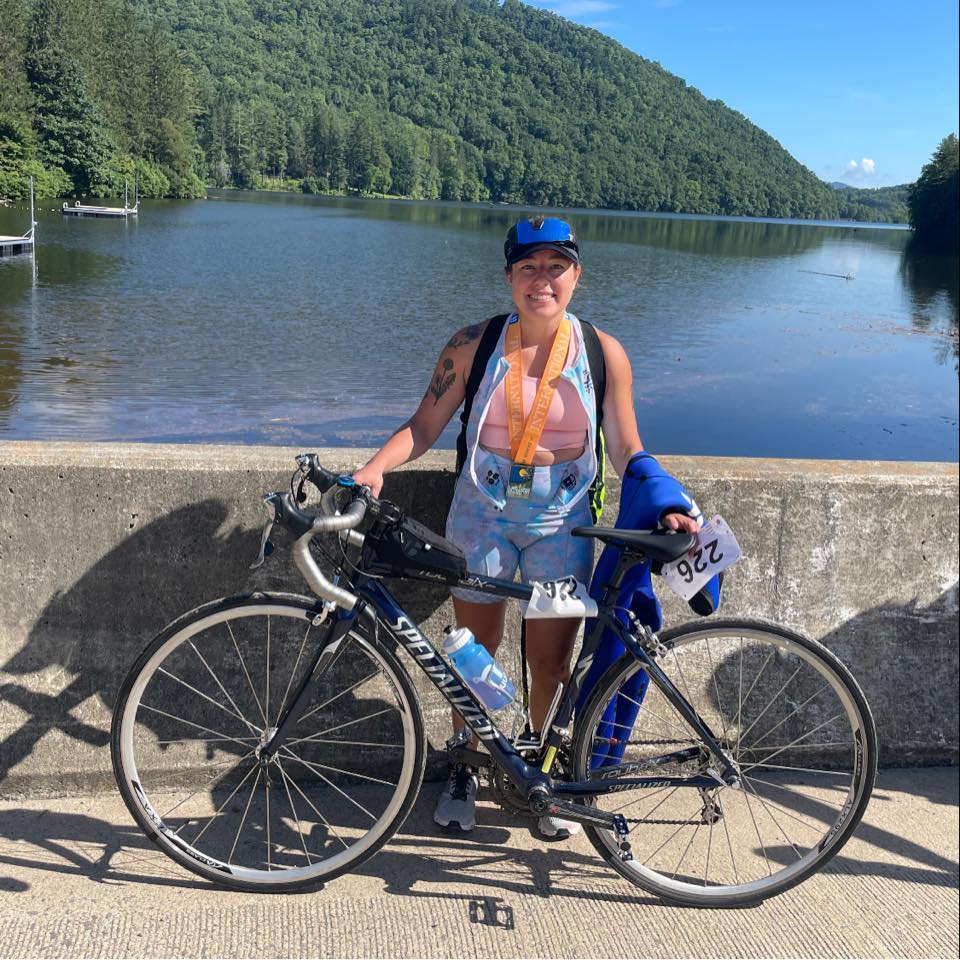
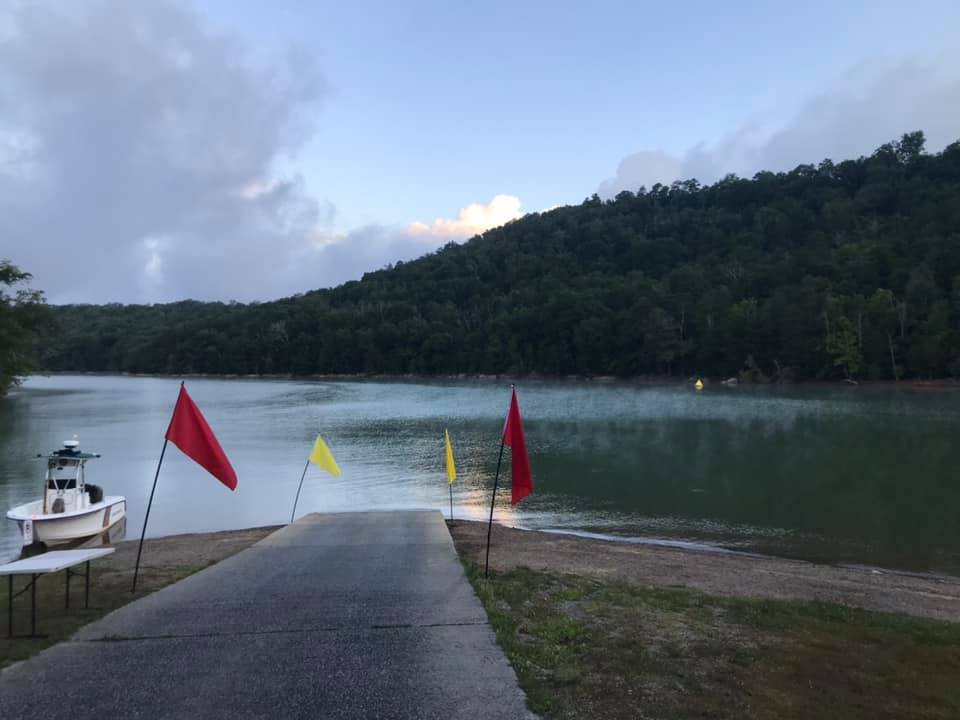
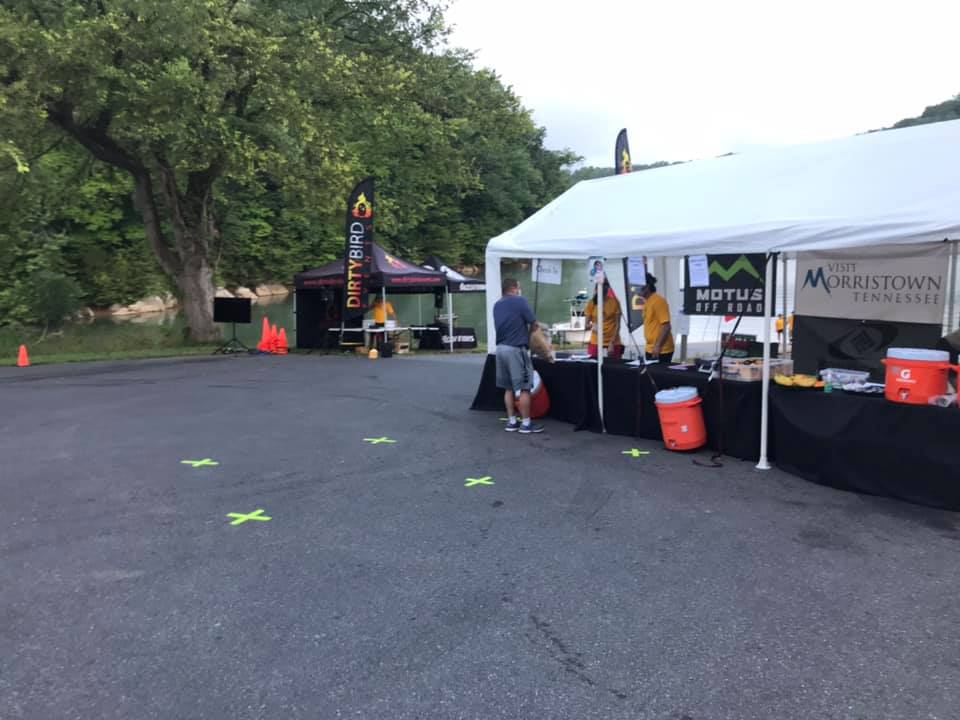
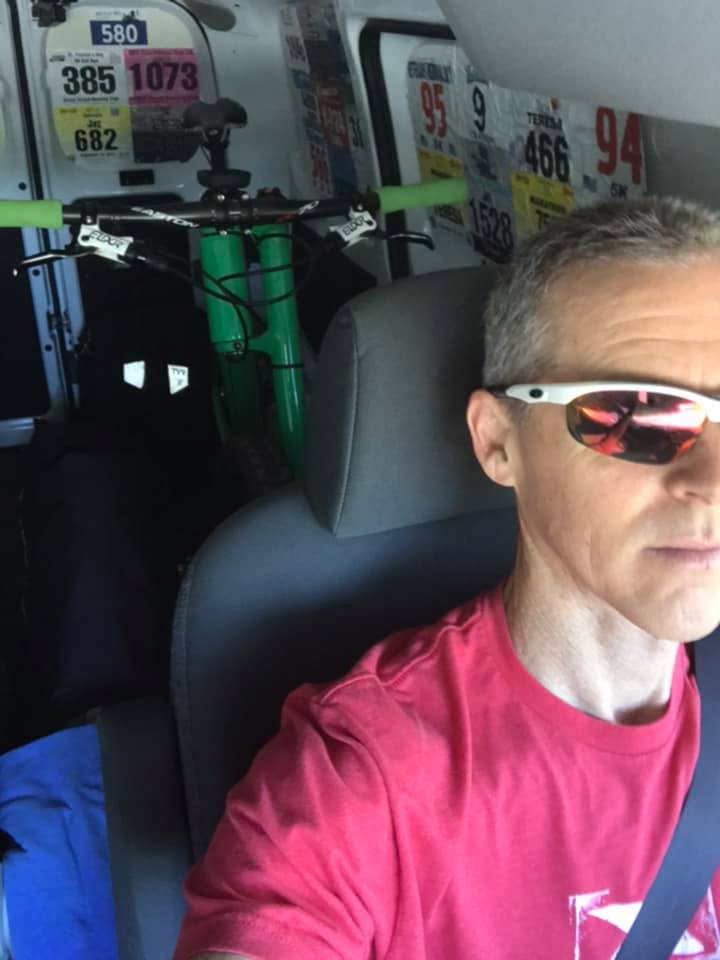
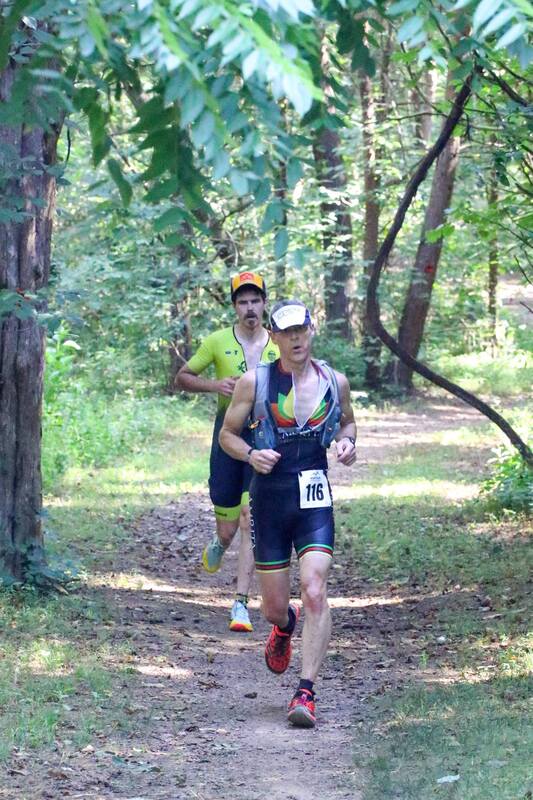
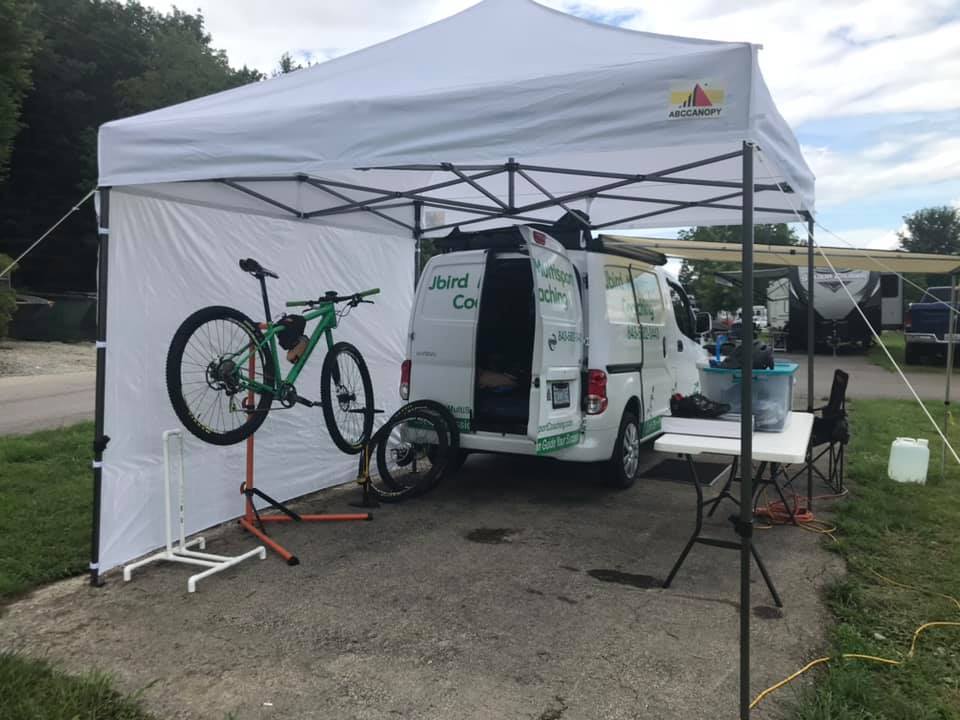
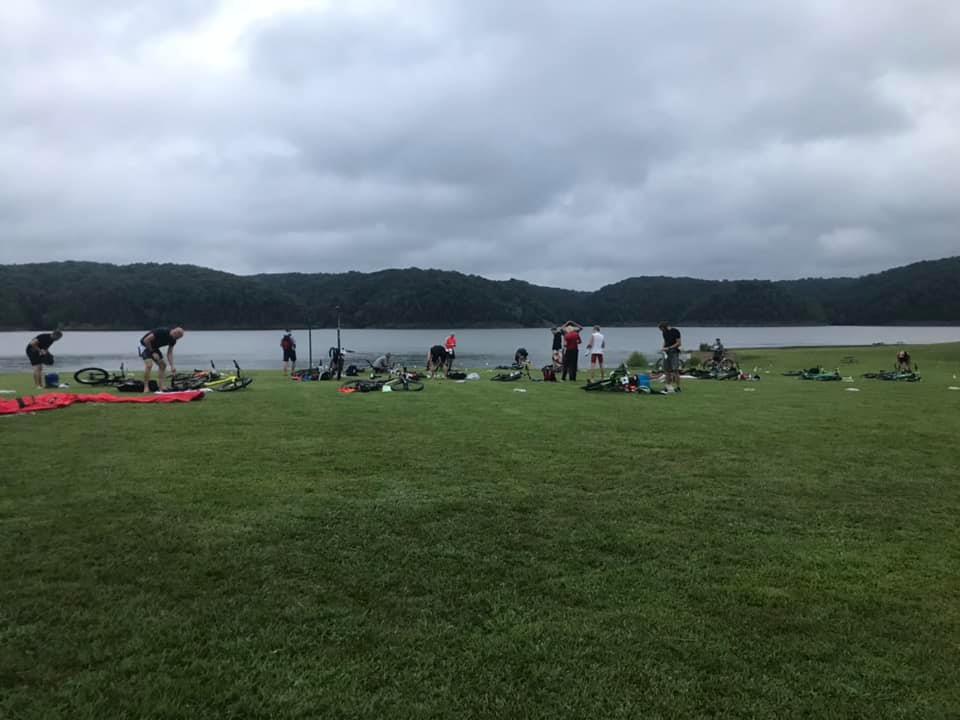
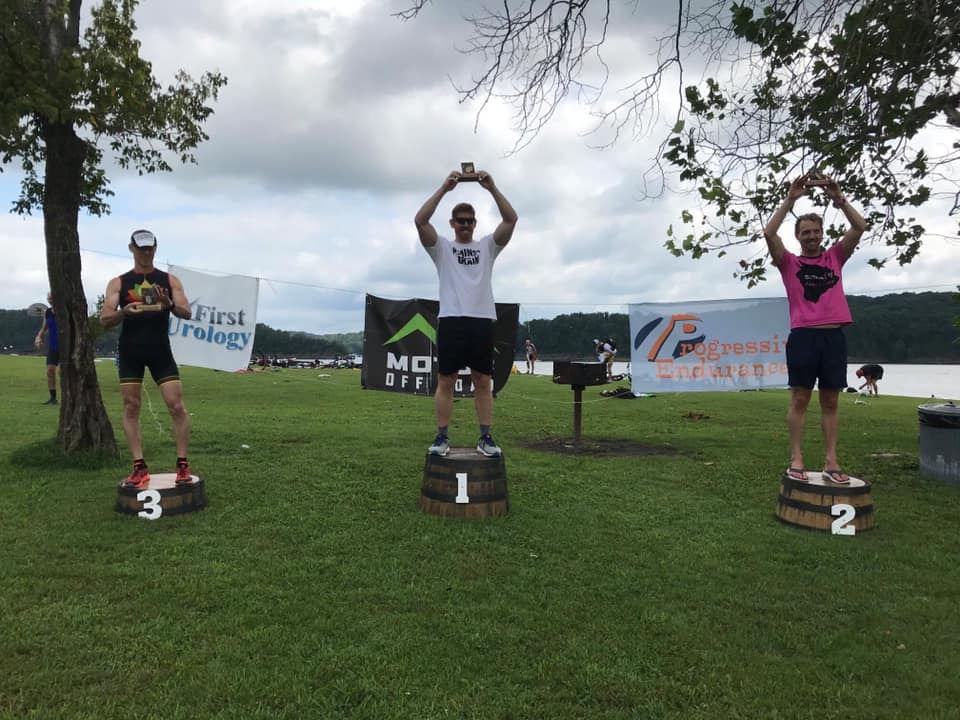
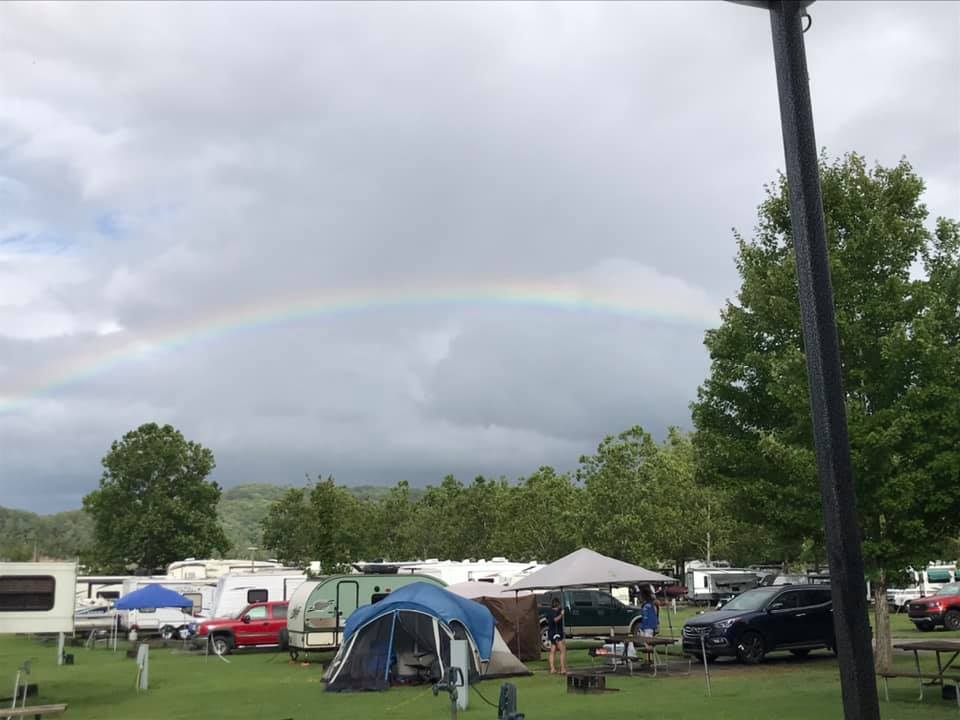
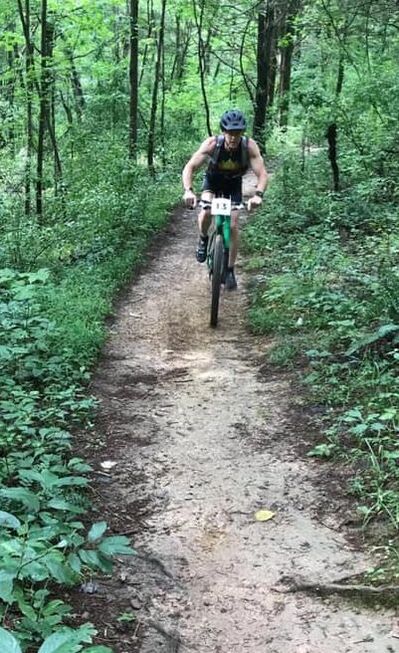
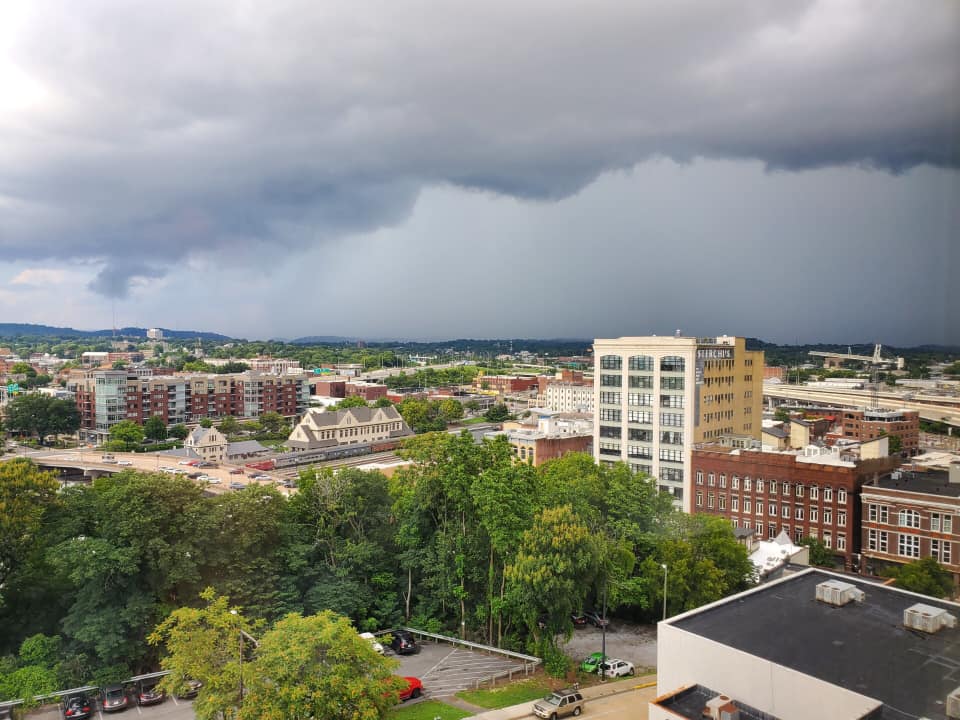
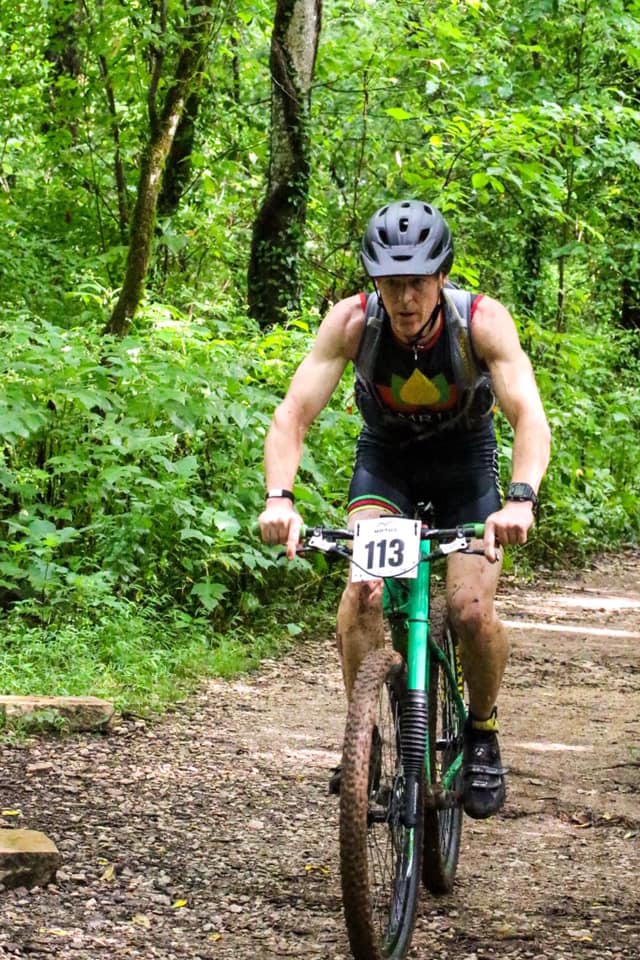
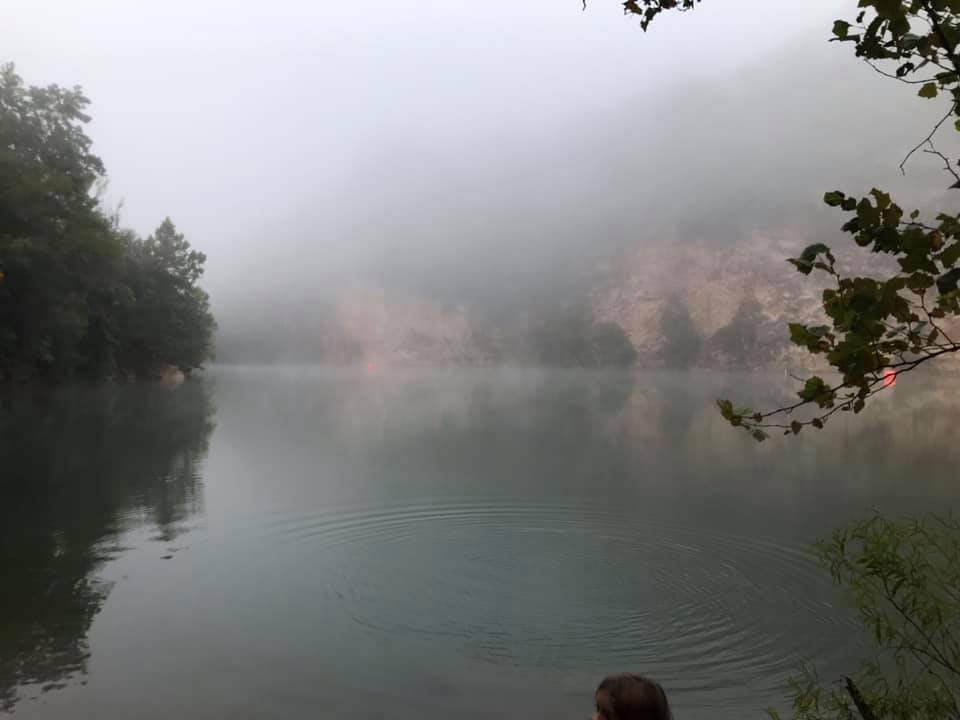
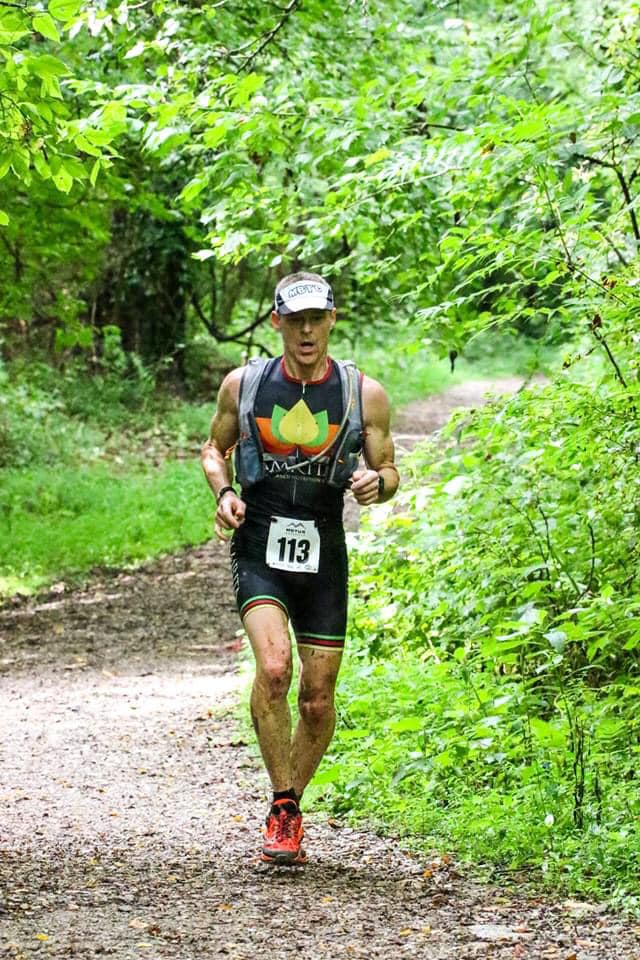
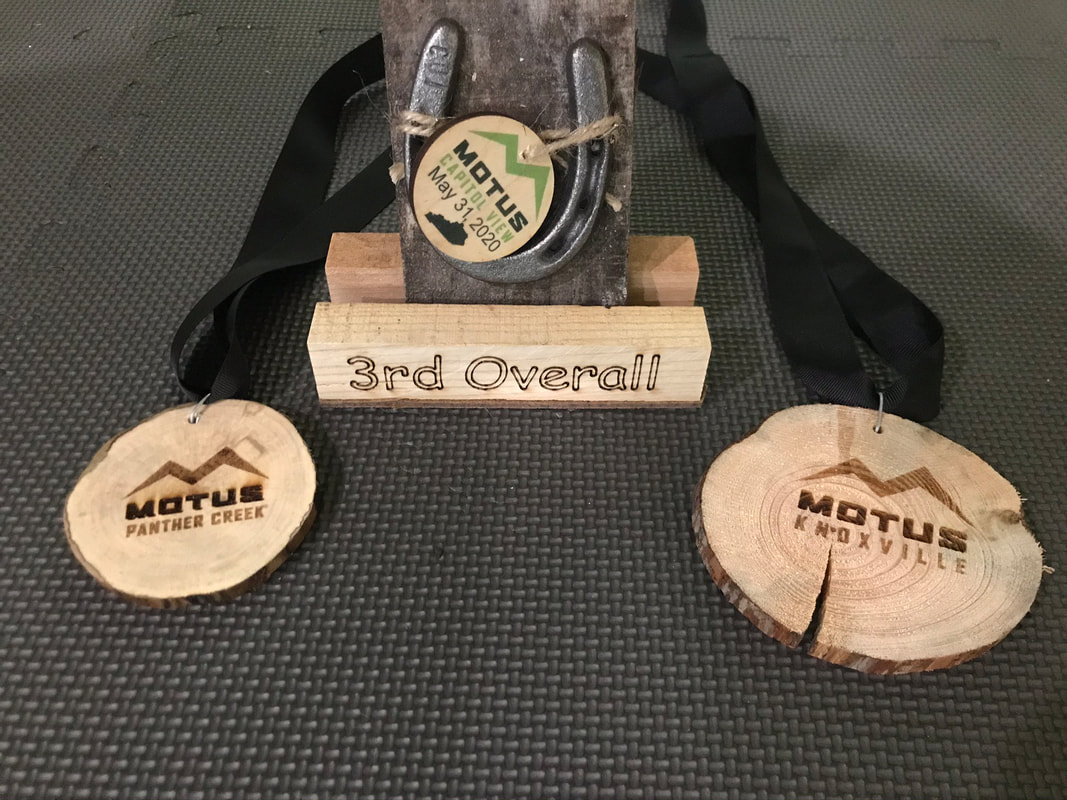
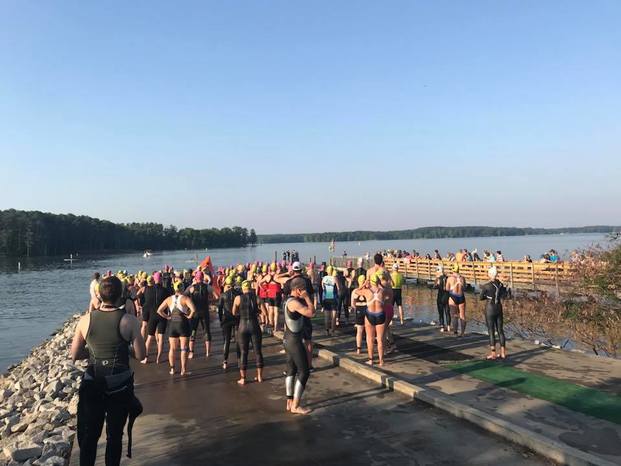
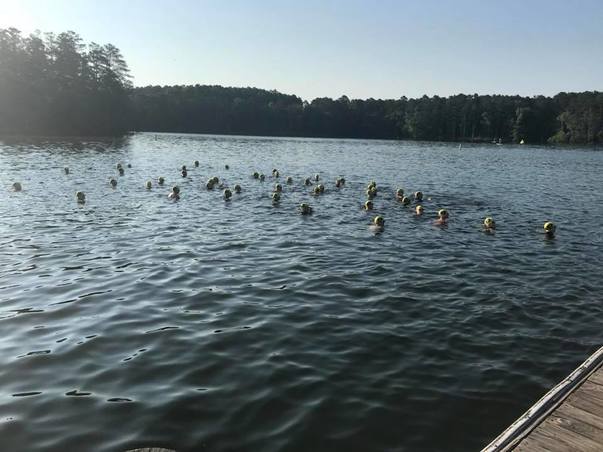
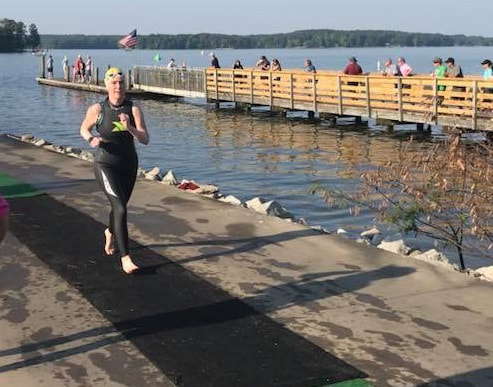
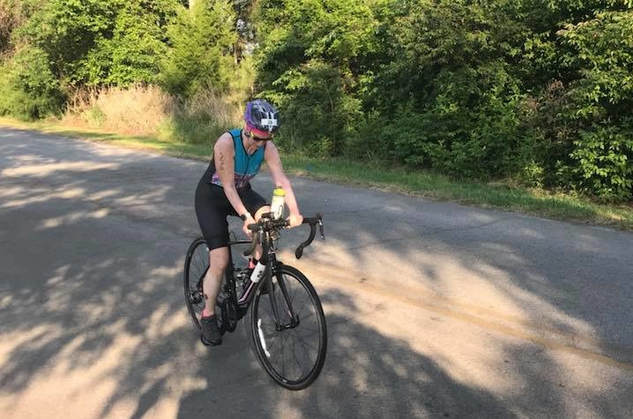
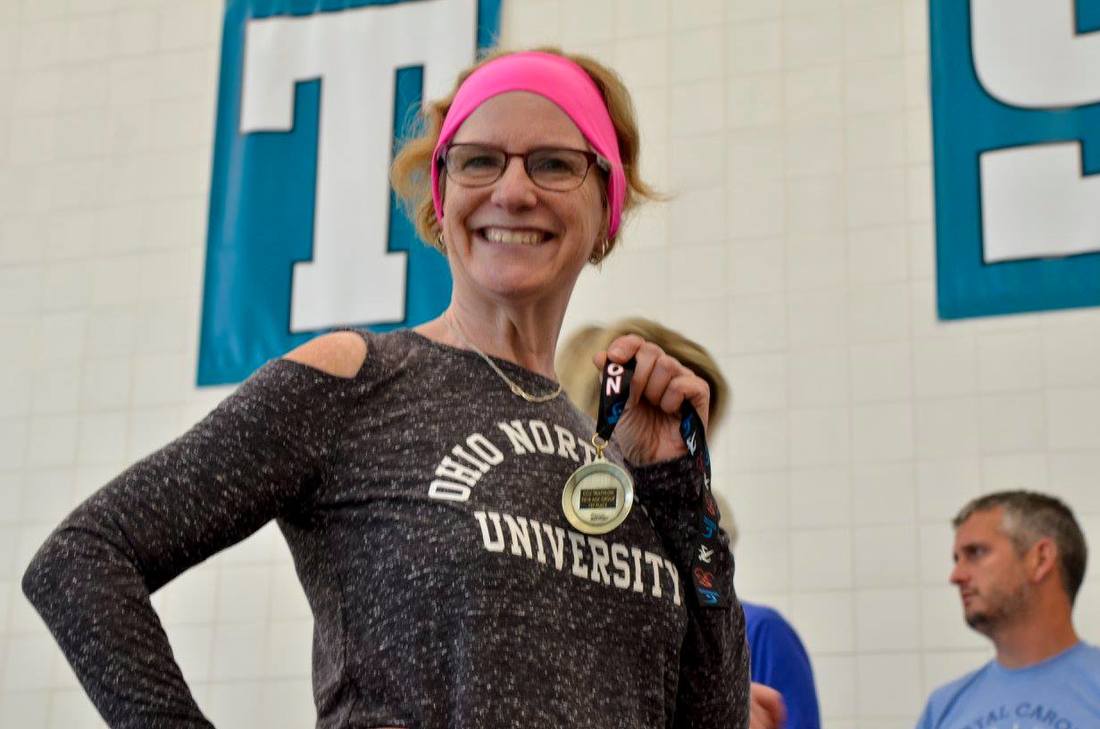
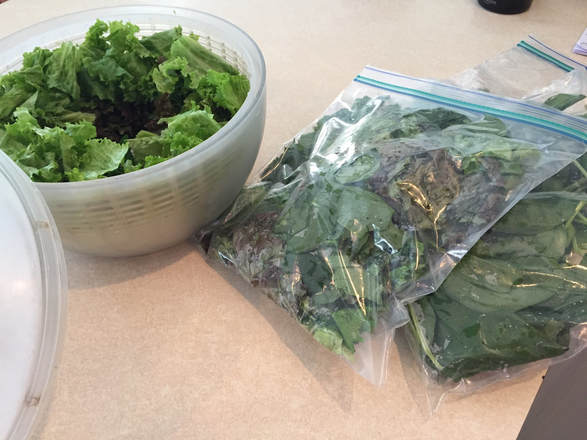
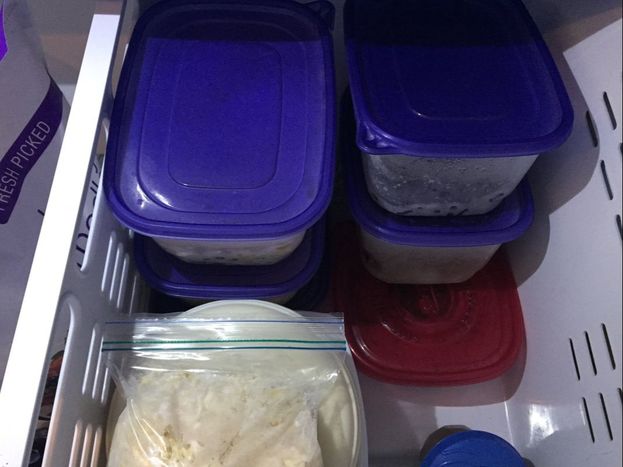
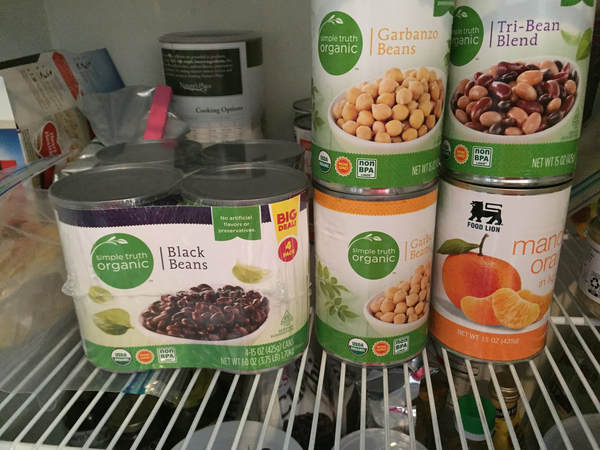
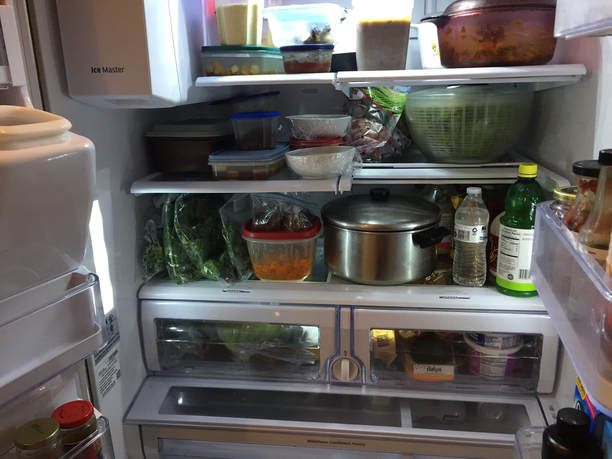
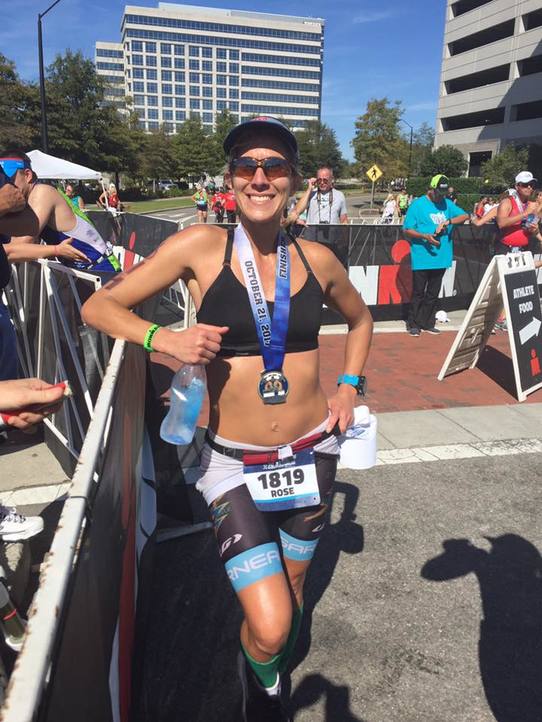
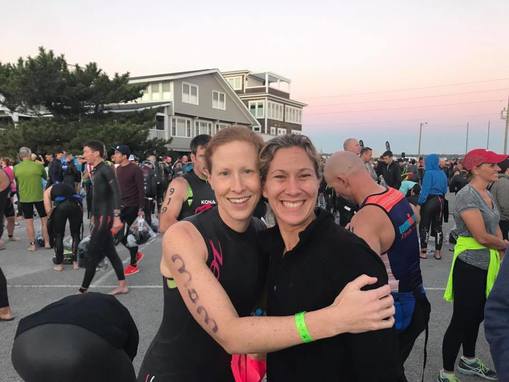
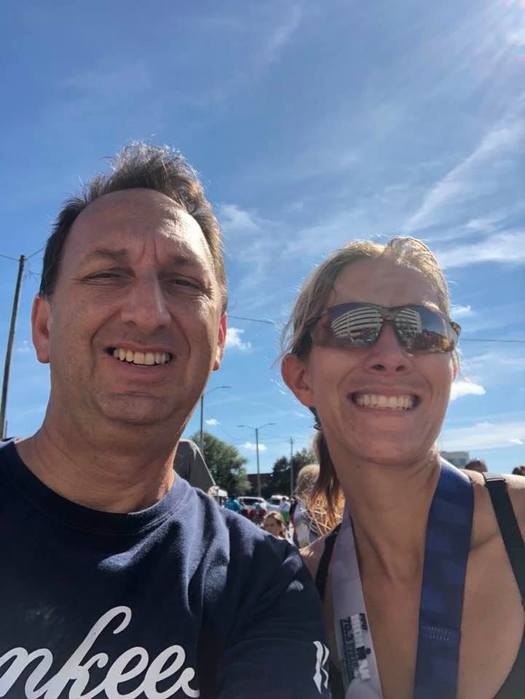
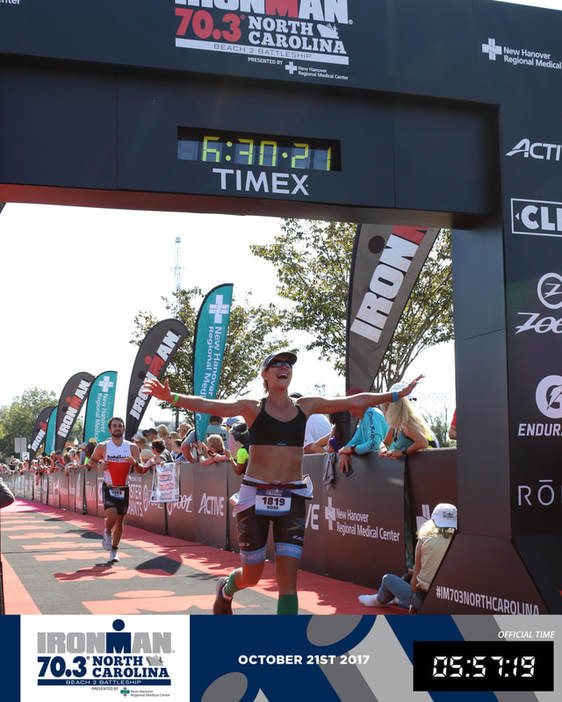
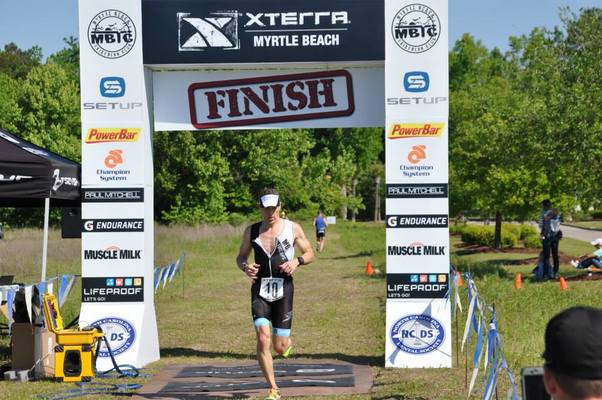
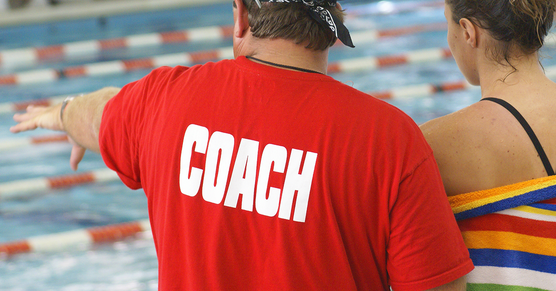
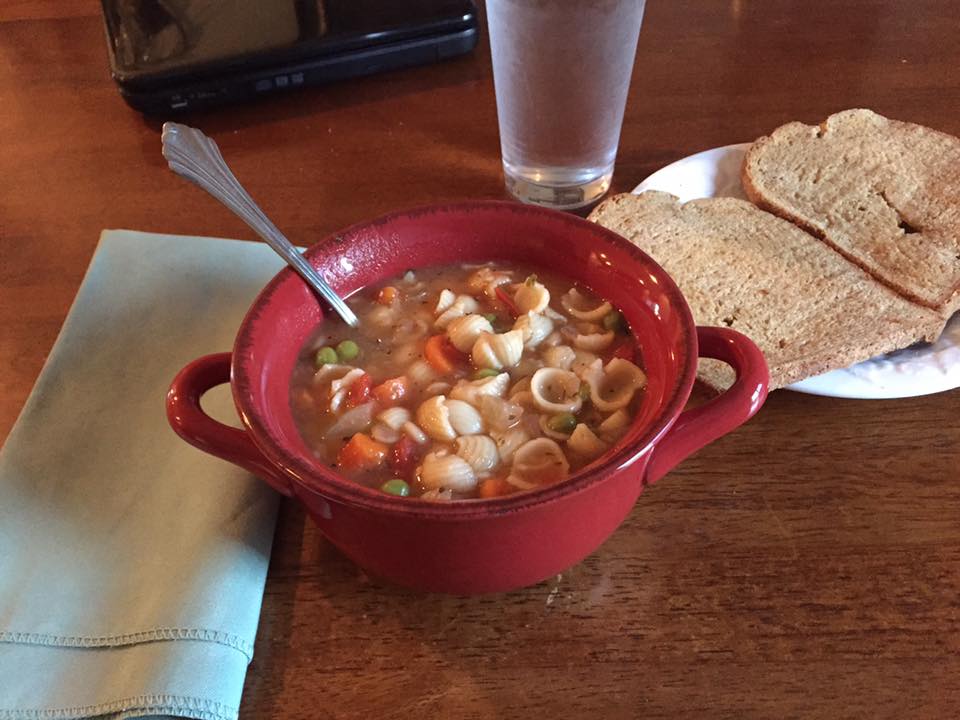
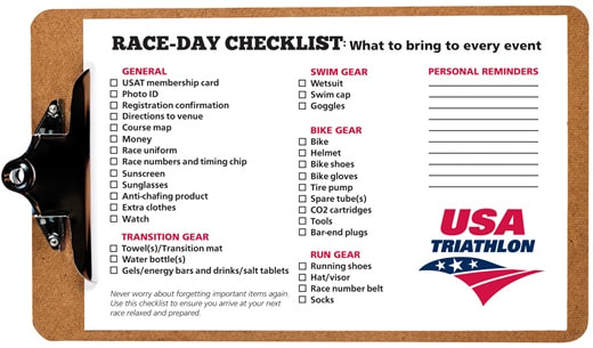
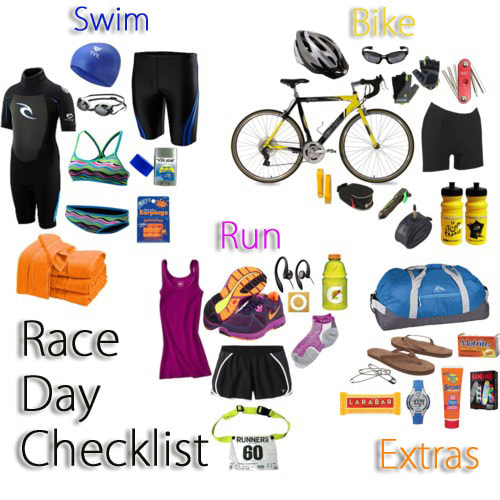
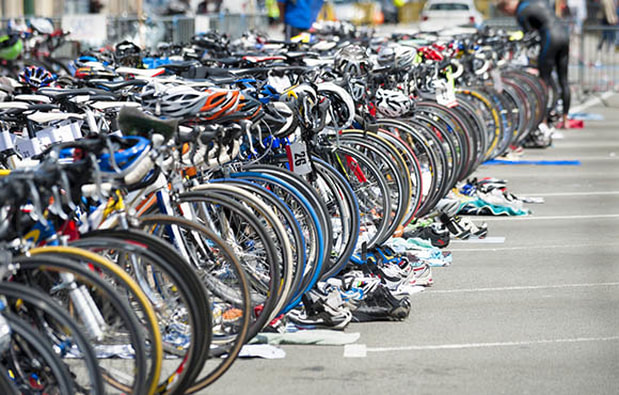
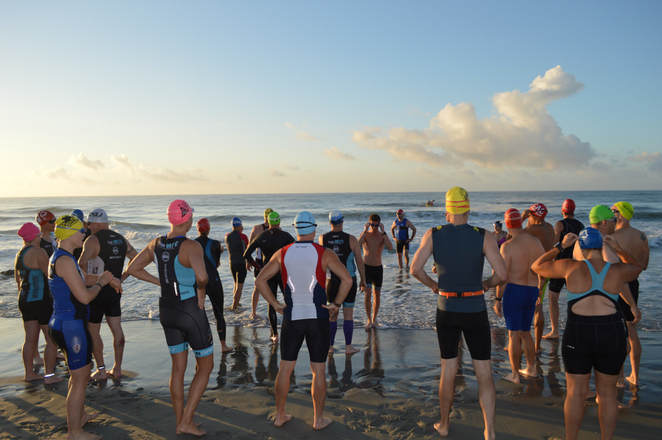
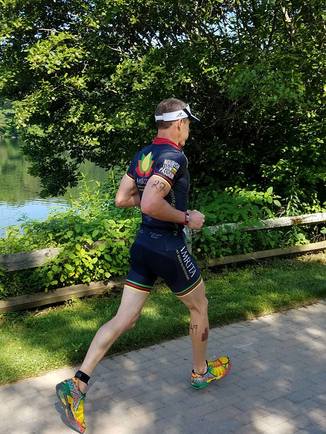
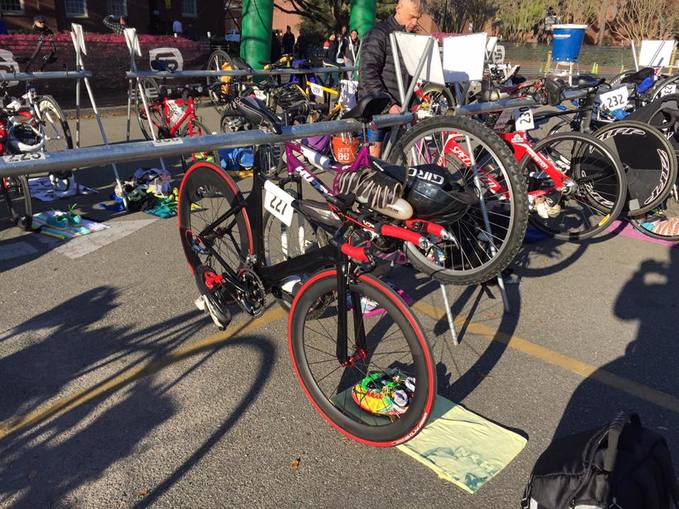
 RSS Feed
RSS Feed